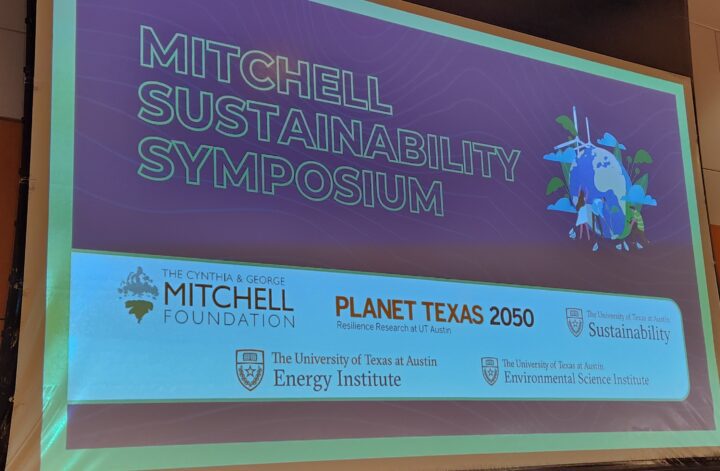The University of Texas at Austin hosted the 2025 Mitchell Sustainability Symposium at the William C. Powers Student Activity Center. This event brought together faculty, students, sustainability experts, and community members to examine the state of sustainability on campus and explore its broader impact on education, research, and community engagement.
With a packed agenda from morning networking to student lightning talks, the symposium showcased the university’s role as both an innovator and facilitator in the sustainability space. Below is an overview of the key sessions and highlights.
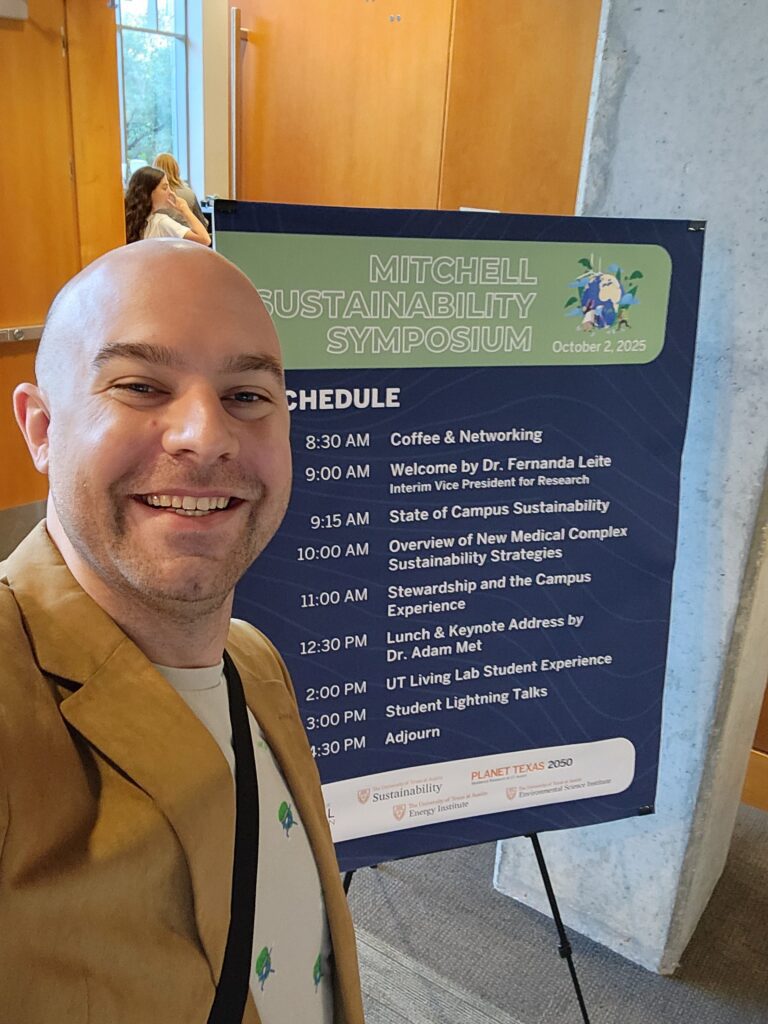
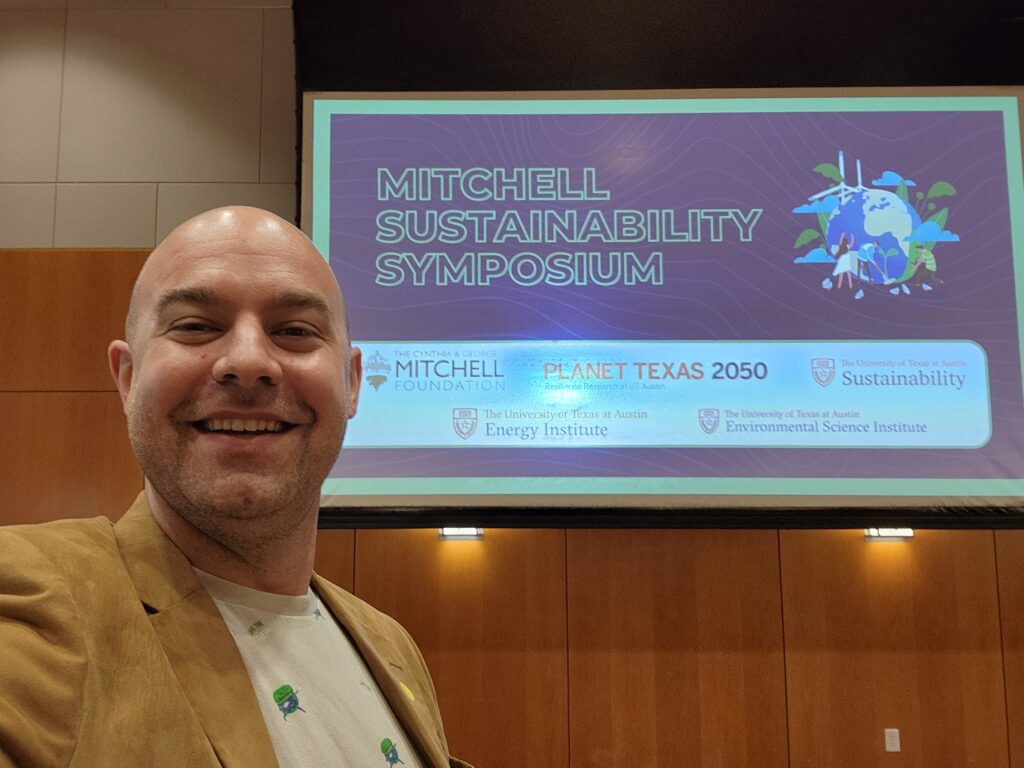
Welcome & Opening Remarks
Speaker: Dr. Fernanda Leite, Interim Vice President for Research
Dr. Leite opened the symposium by welcoming attendees and acknowledging the Mitchell Foundation and campus partners for their support. She emphasized the importance of embedding sustainability across disciplines and integrating it into research, teaching, and student life. Her remarks underscored UT Austin’s commitment to shaping the next generation of leaders who will confront climate change and sustainability challenges head-on.
Highlights:
- Positioned UT Austin as a hub for sustainability research and education.
- Stressed the importance of cross-disciplinary collaboration.
- Reinforced the role of students as drivers of innovation and impact.
State of Campus Sustainability
Speaker: Jim Walker, Director, Office of Sustainability
Jim Walker set the stage by sharing a snapshot of progress and challenges in UT’s ongoing sustainability journey. He discussed measurable outcomes in energy reduction, water conservation, and waste diversion while pointing to opportunities for student engagement and cross-campus collaboration. His remarks reflected both optimism about UT’s achievements and urgency around areas where more work is needed, such as carbon neutrality and adapting to climate change.
Highlights:
- Measurable reductions in campus energy use and greenhouse gas emissions.
- Ongoing efforts to expand water conservation and reuse.
- Growth in active transportation and low-carbon commuting options.
- Emphasis on engaging students, faculty, and staff in campus-wide sustainability goals.
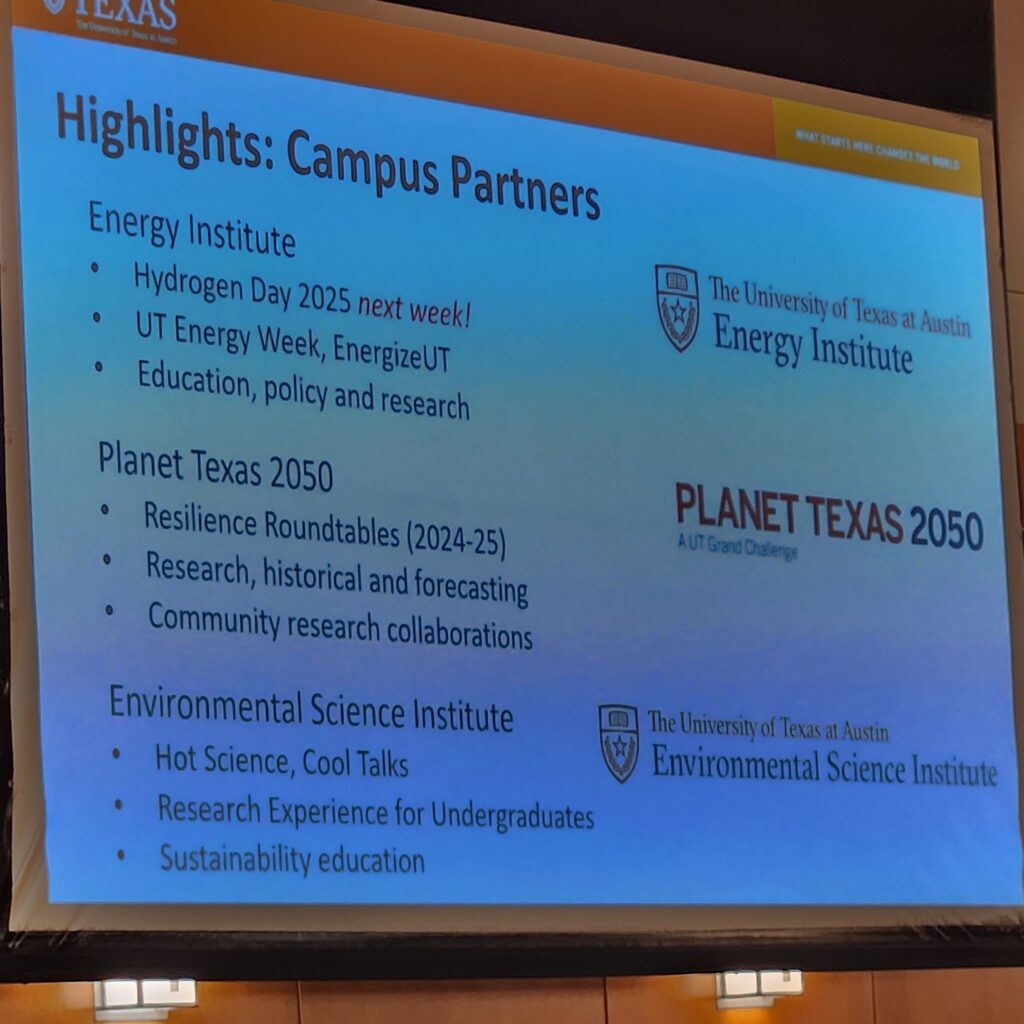
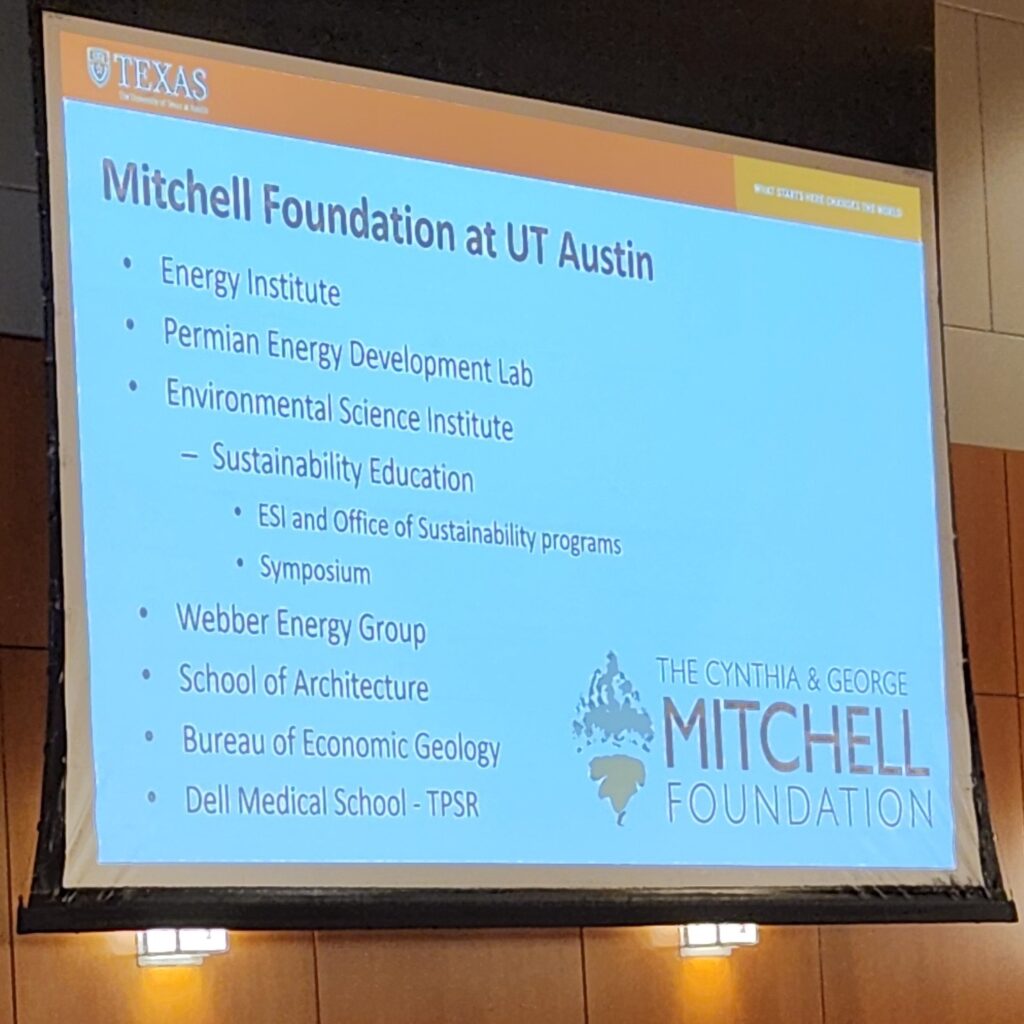
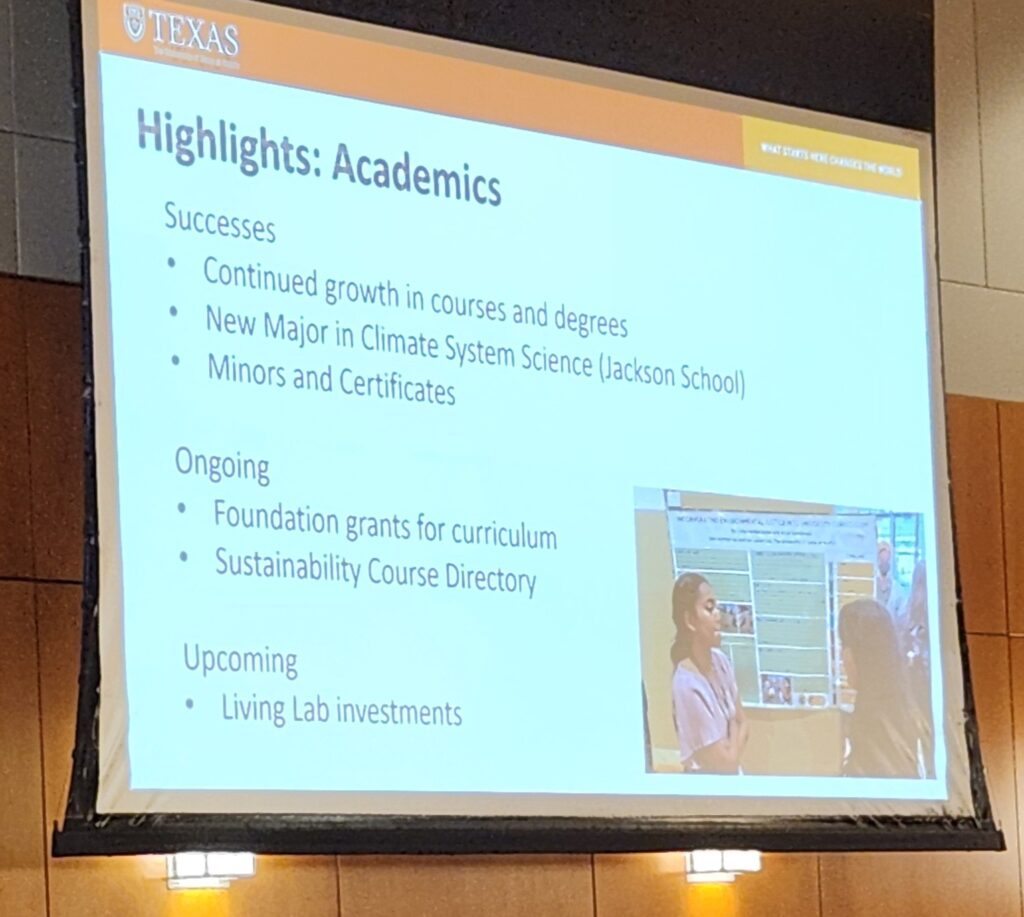
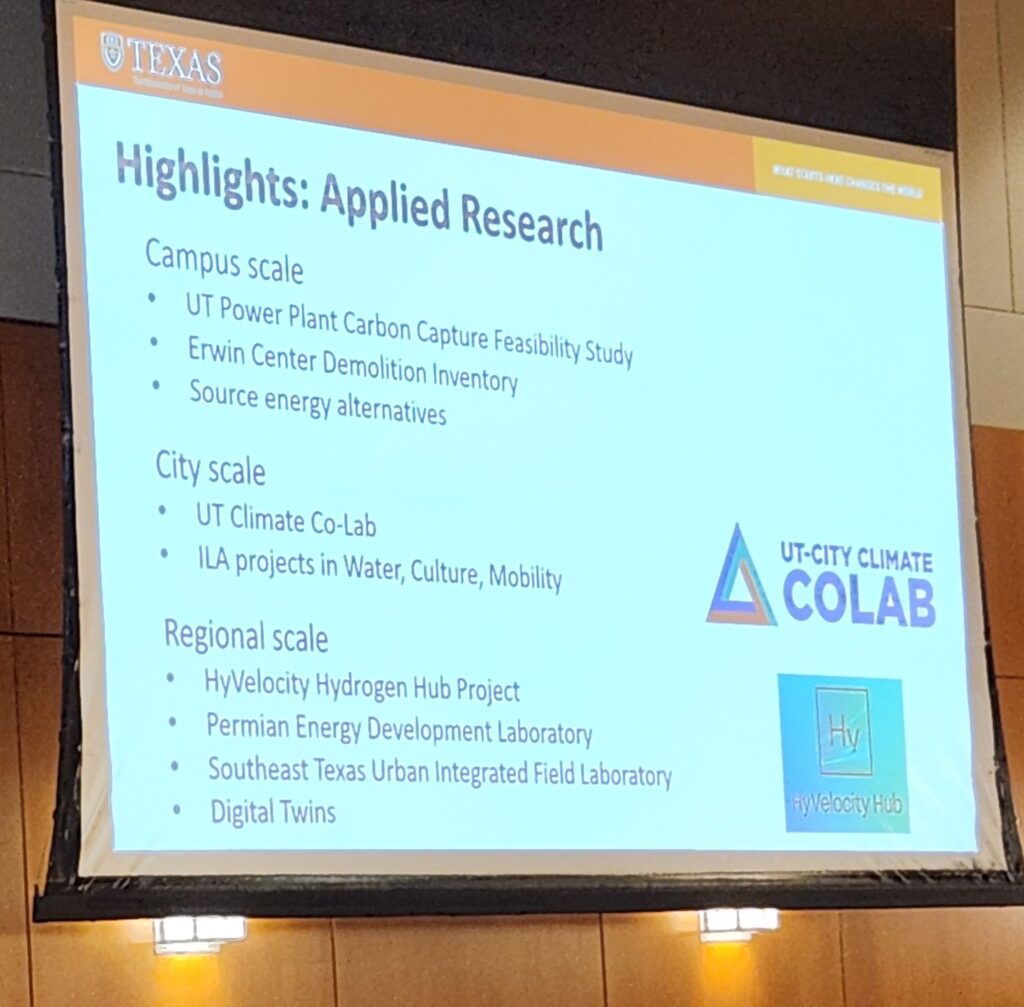
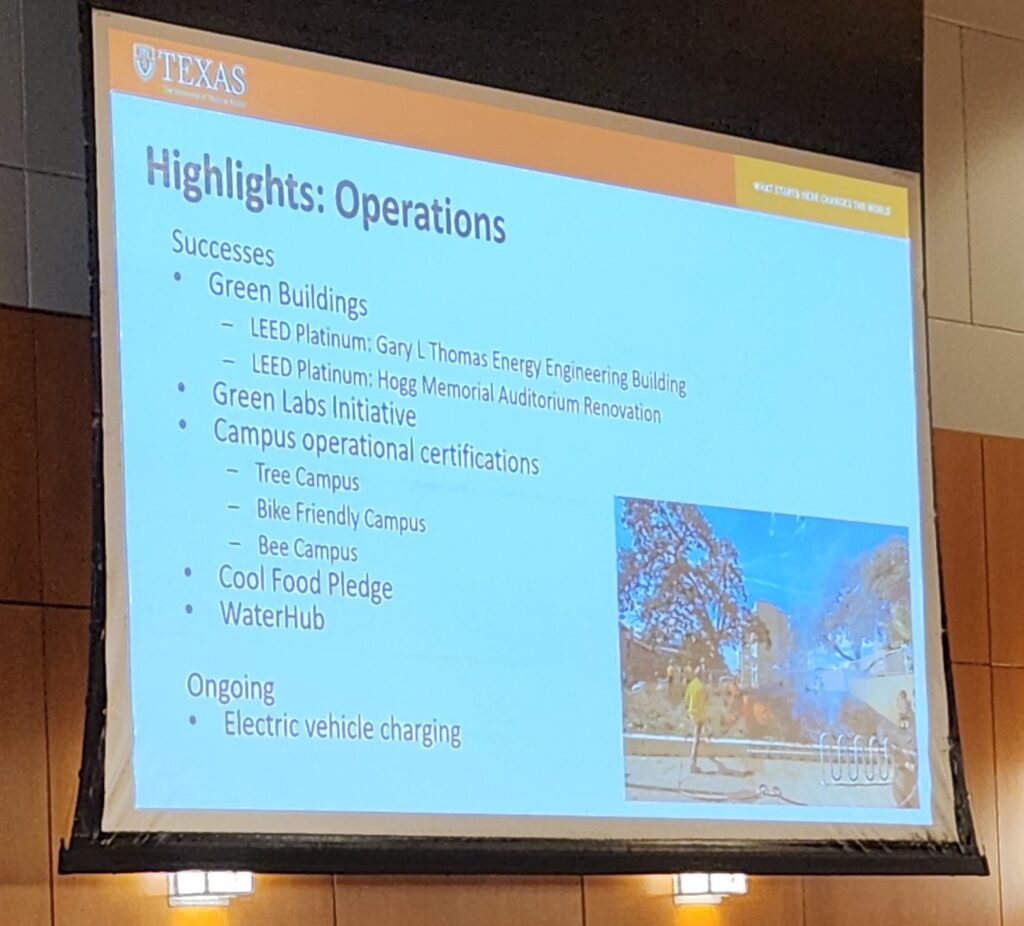
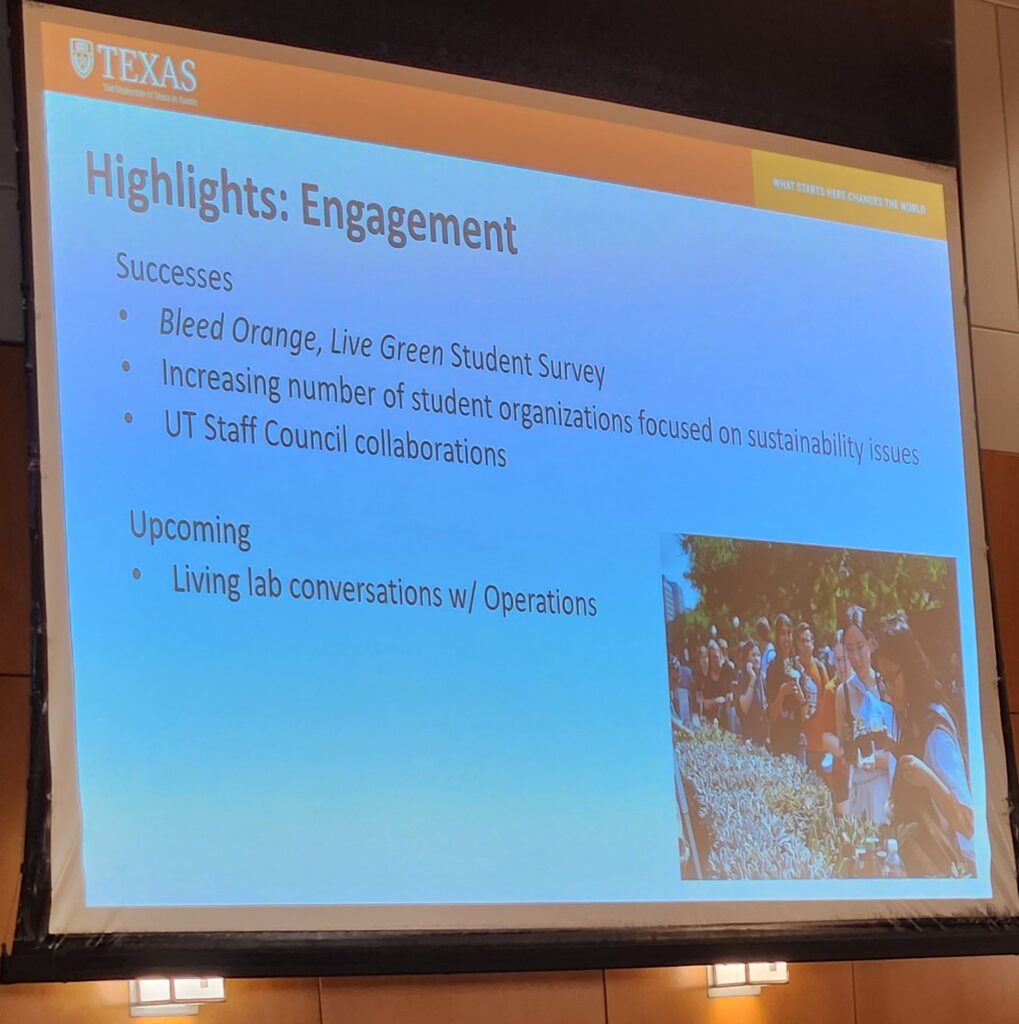
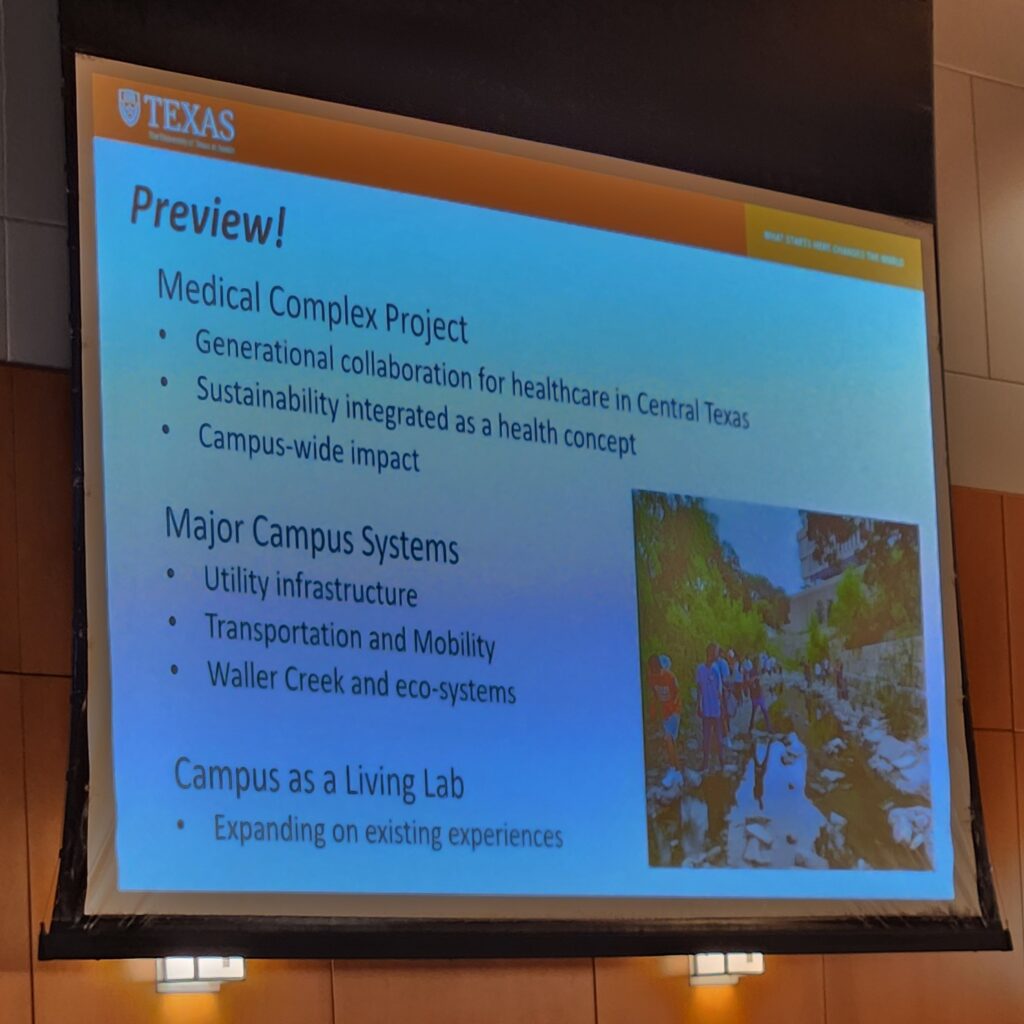
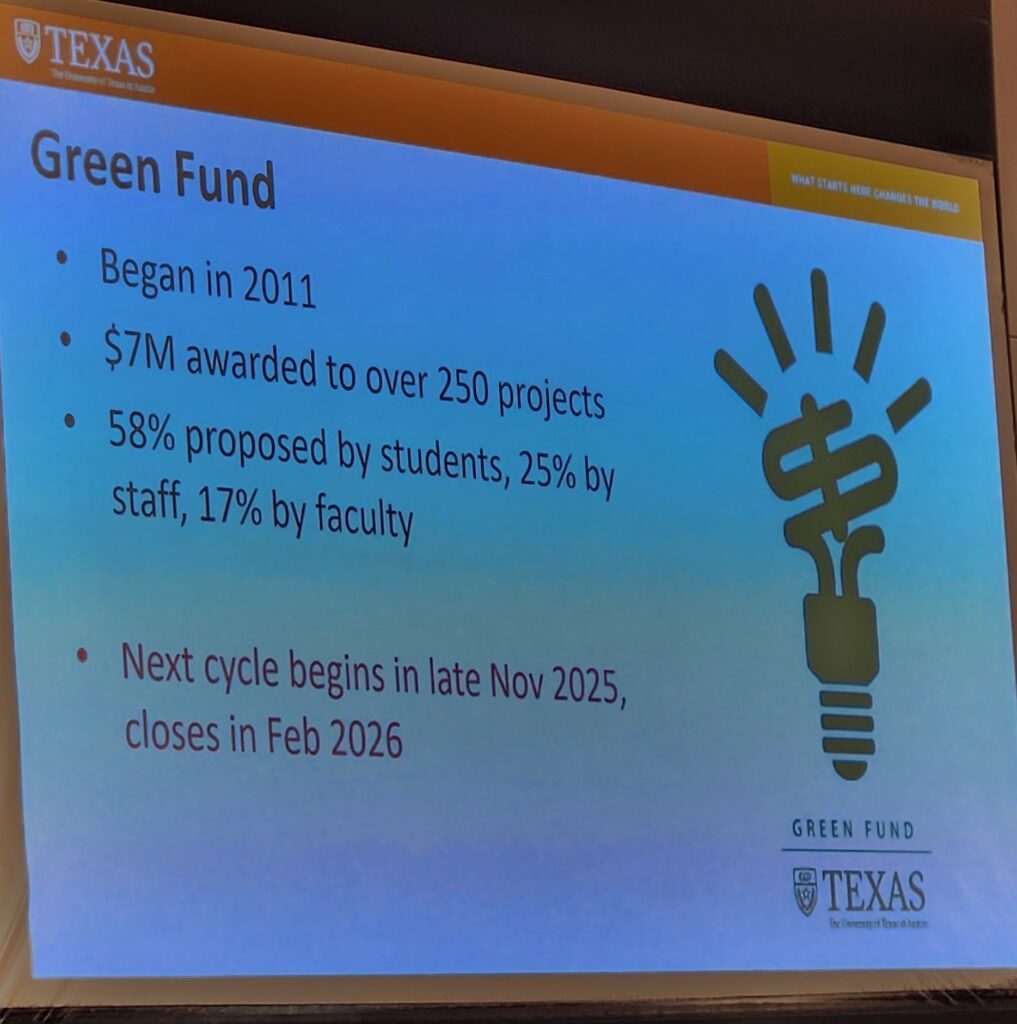
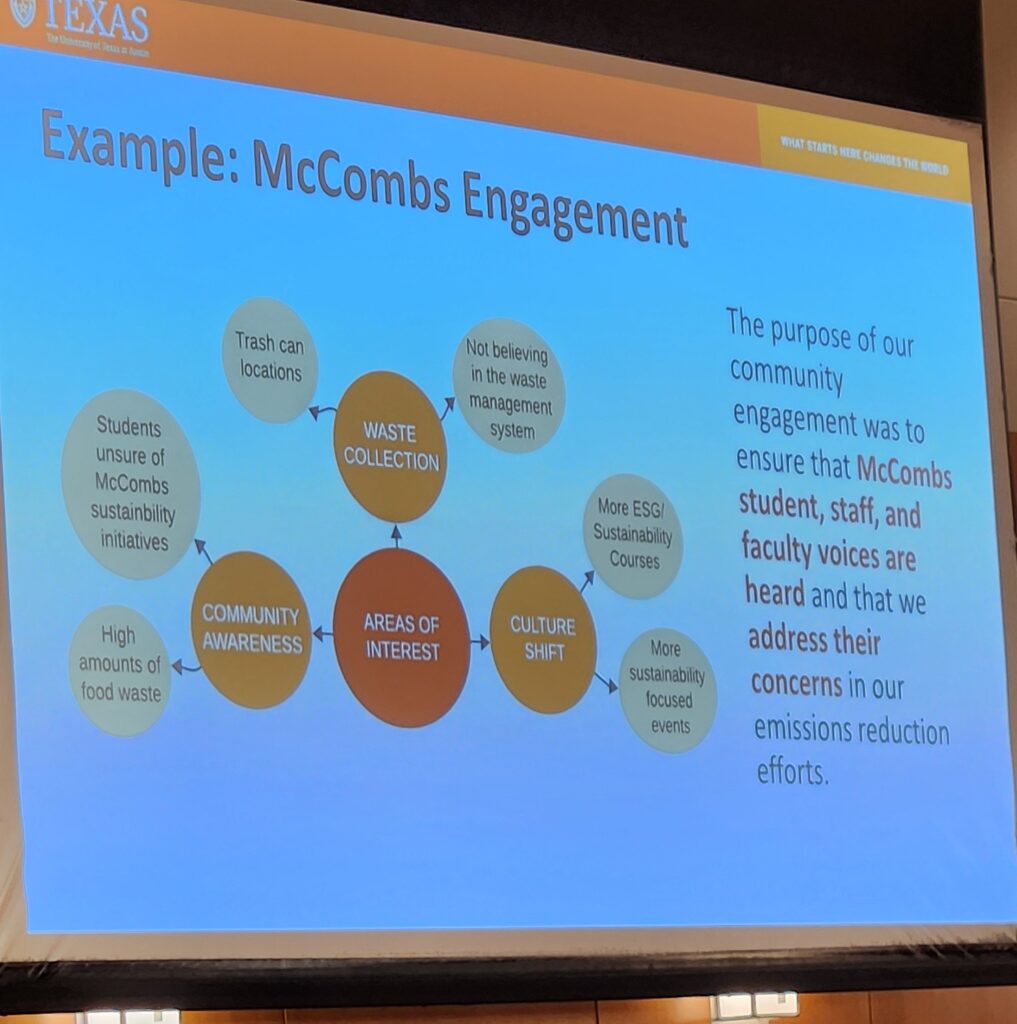
Sustainability in the New Medical Complex
Moderator: Allison Muth, Planning, Design & Construction
Panelists: Travis Laird, Pouyan Layegh, Gail Vittori
This session examined one of UT’s most ambitious projects: the new Dell Medical School and UT MD Anderson Cancer Center complex. Panelists explained how sustainability principles were embedded from the project’s inception, guiding decisions on energy, water, materials, and long-term resilience. With over 3 million square feet of interconnected space, the medical complex aims to serve not only as a healthcare hub but also as a living laboratory for sustainable design and operations.
Highlights:
- Early integration of sustainability in design and operations.
- Targets for energy efficiency, water reuse, and sustainable materials.
- A vision of the medical complex as a healing, resilient environment.
- Collaboration between healthcare leaders, engineers, and sustainability experts.
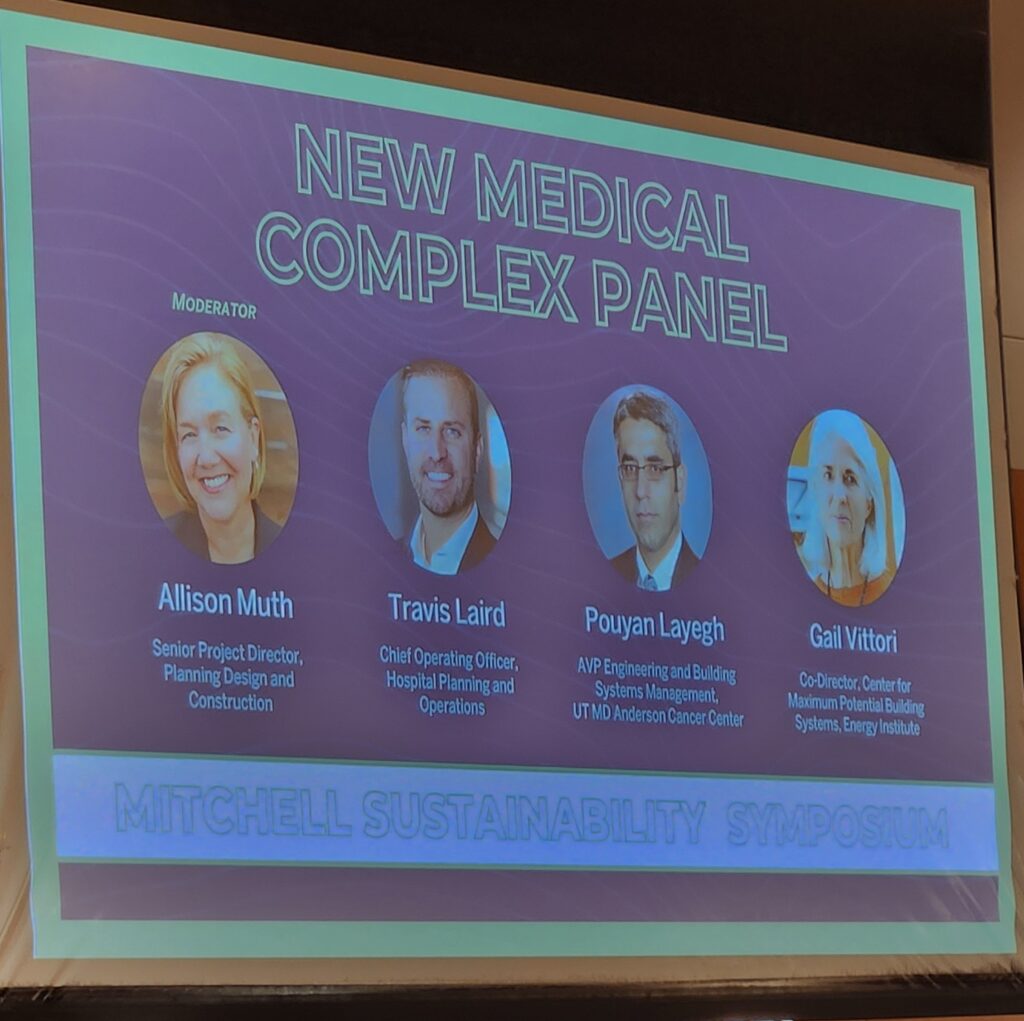
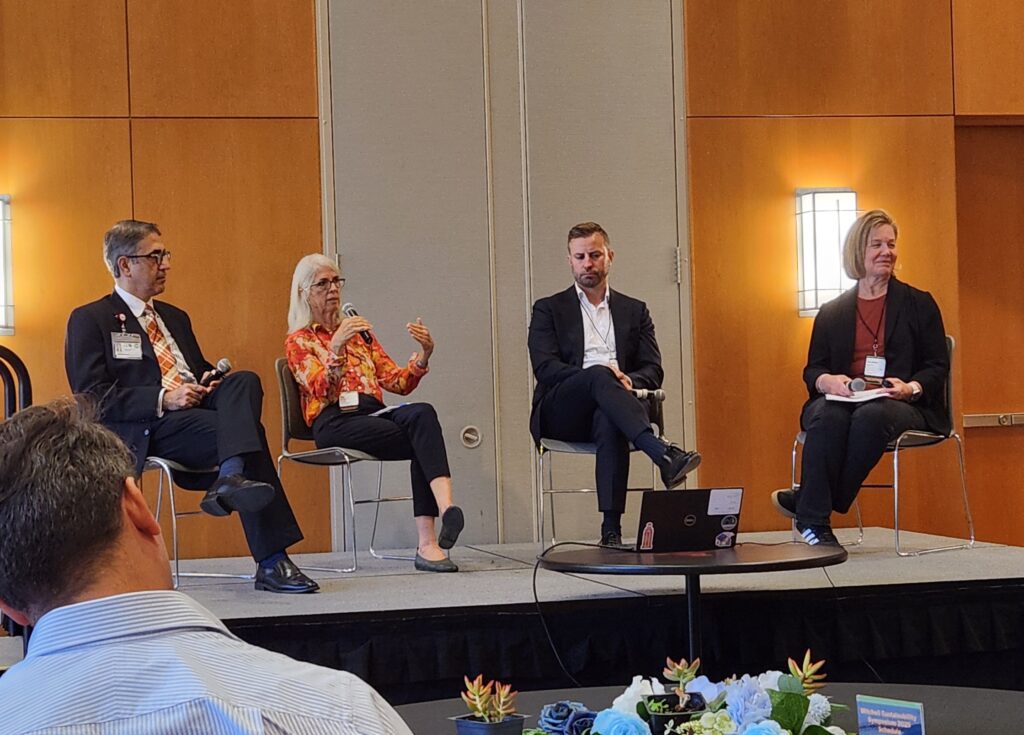
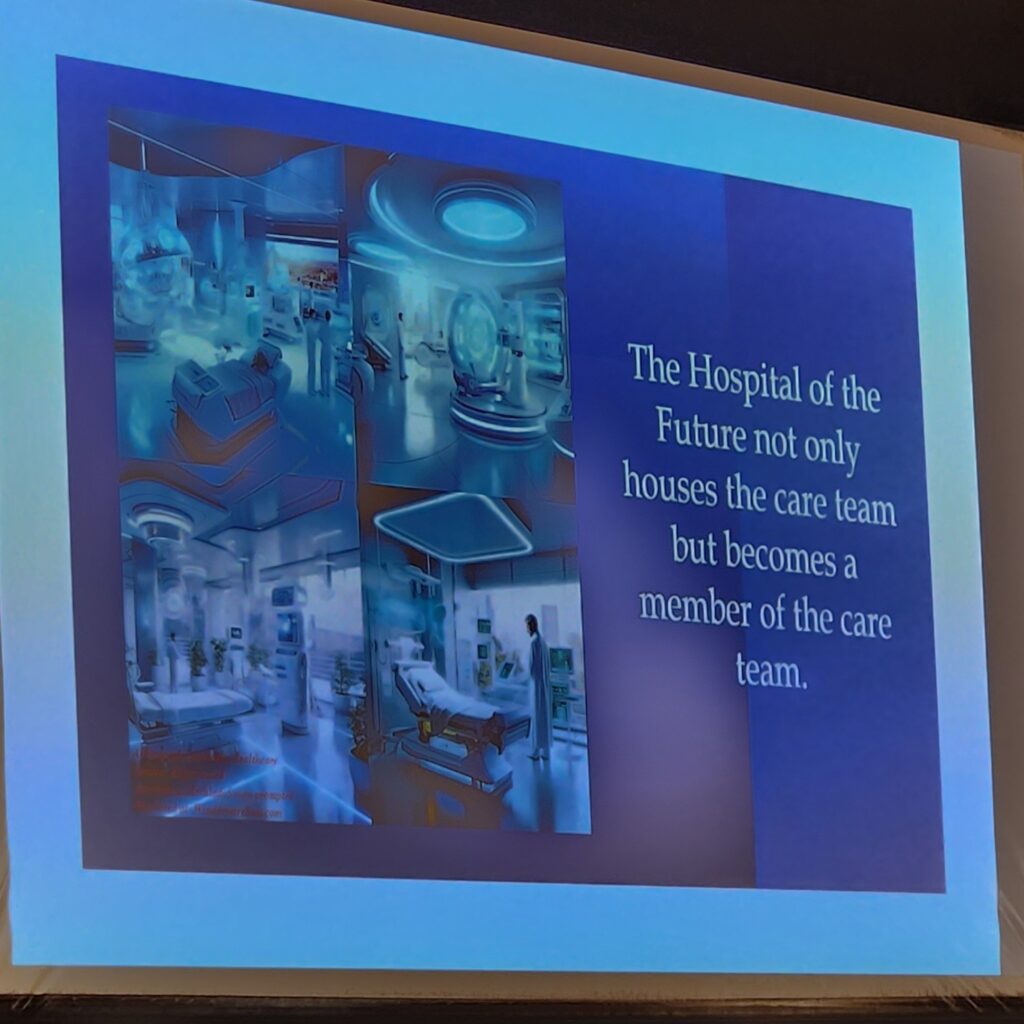
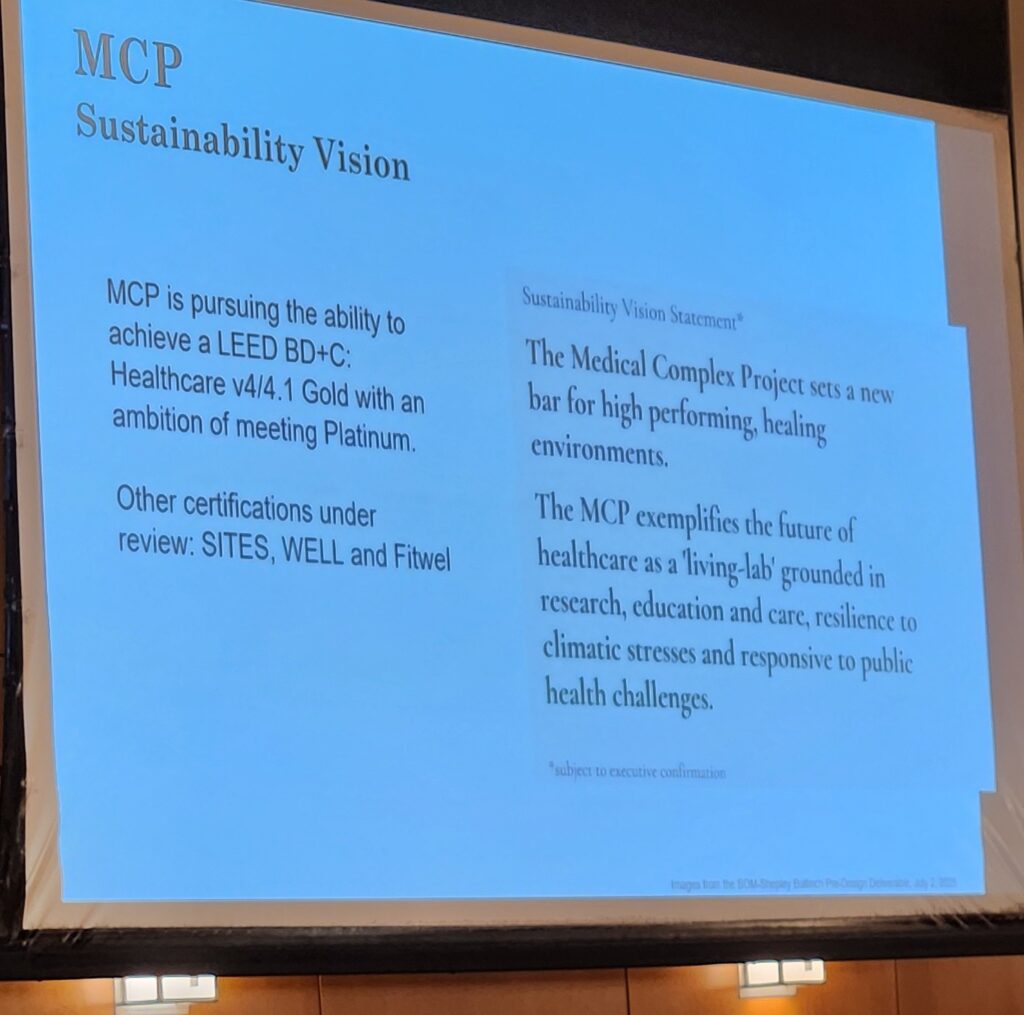
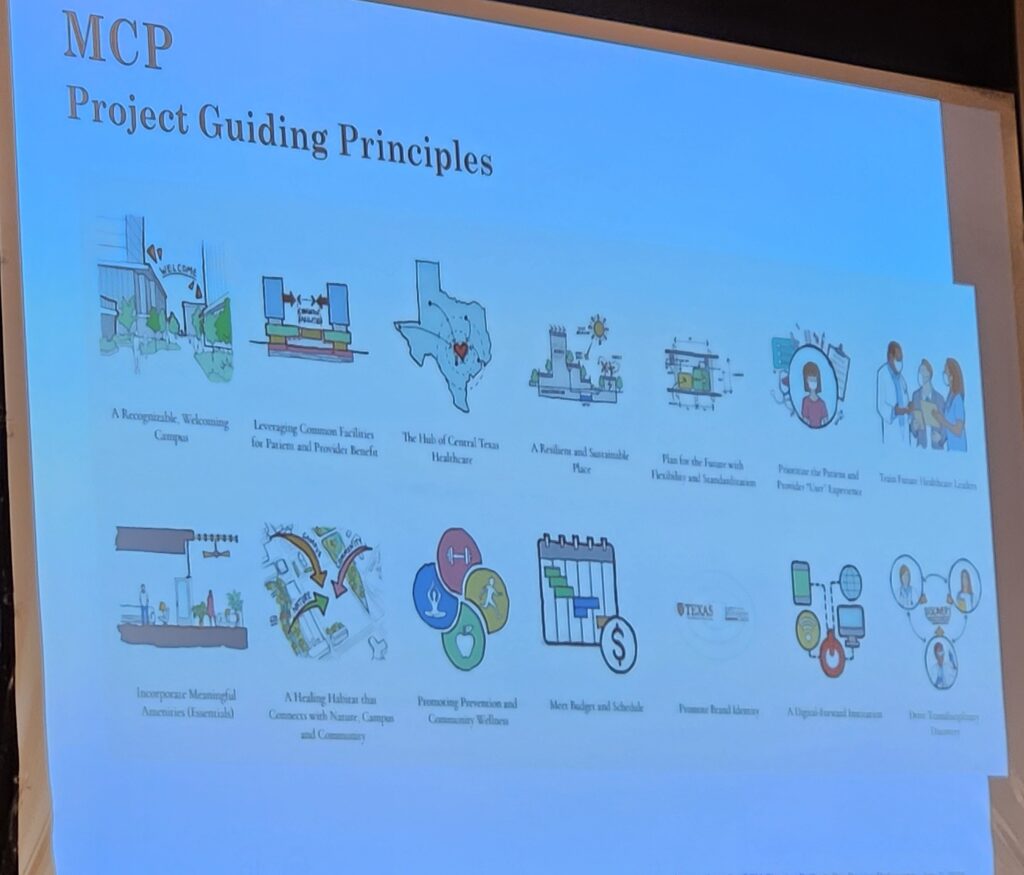
Stewardship and the Campus Experience
Moderator: Jim Walker
Panelists: Veronica Castro-Barrera, Claire LeGrow, Ryan Thompson
This panel explored how day-to-day operations and long-term planning work together to create a more sustainable and livable campus. From utilities management to transportation planning, speakers highlighted projects that reduce environmental impact while also enhancing student and faculty experience. The discussion reinforced that sustainability is not just about large-scale projects, but also about continuous stewardship of resources across all areas of campus life.
Highlights:
- Innovations in UT’s power plant and utilities management.
- Expansion of sustainable transportation and mobility planning.
- Advanced water treatment strategies and campus conservation projects.
- Health and safety practices supporting environmental stewardship.
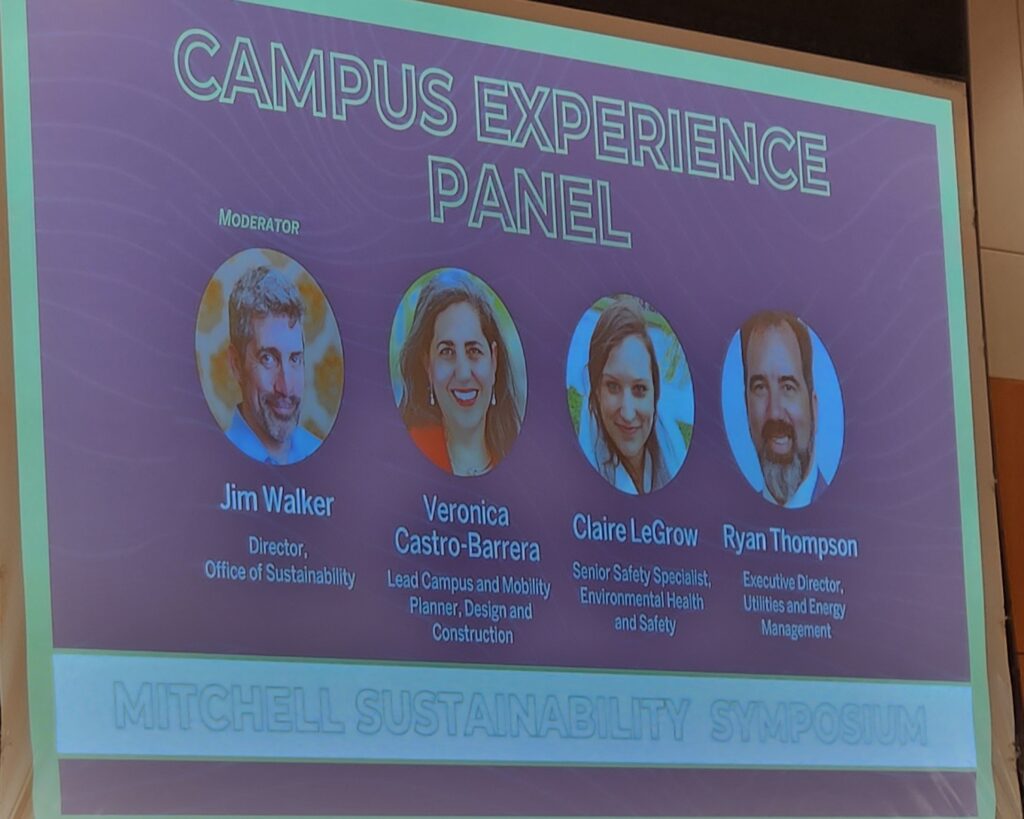
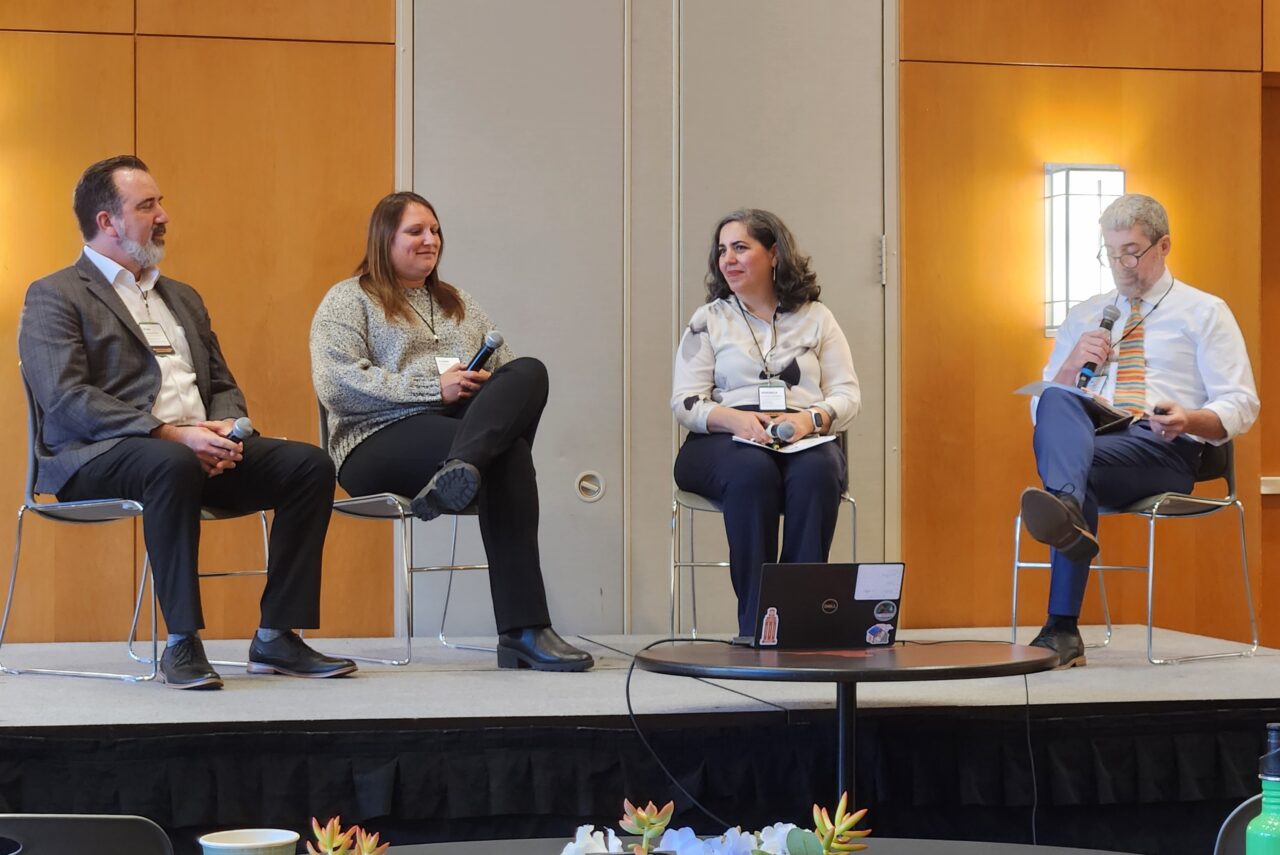
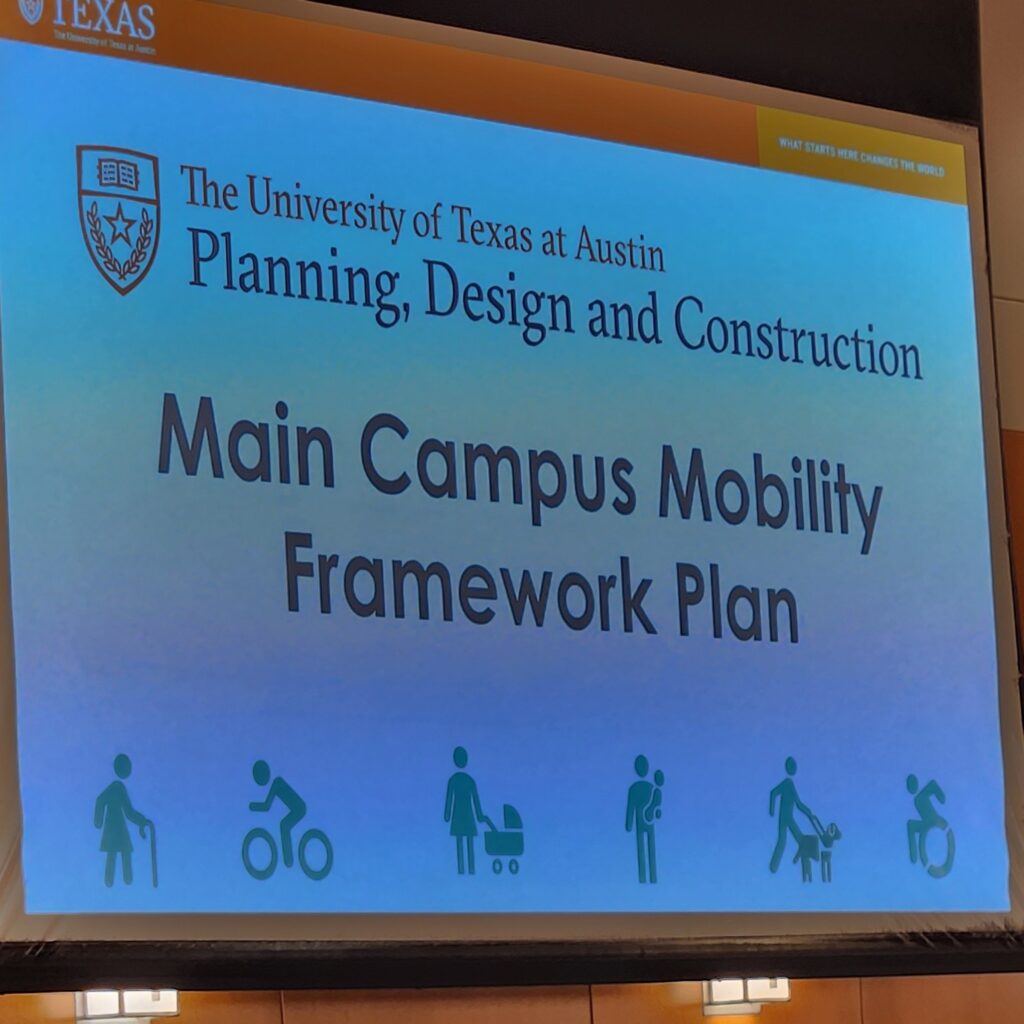
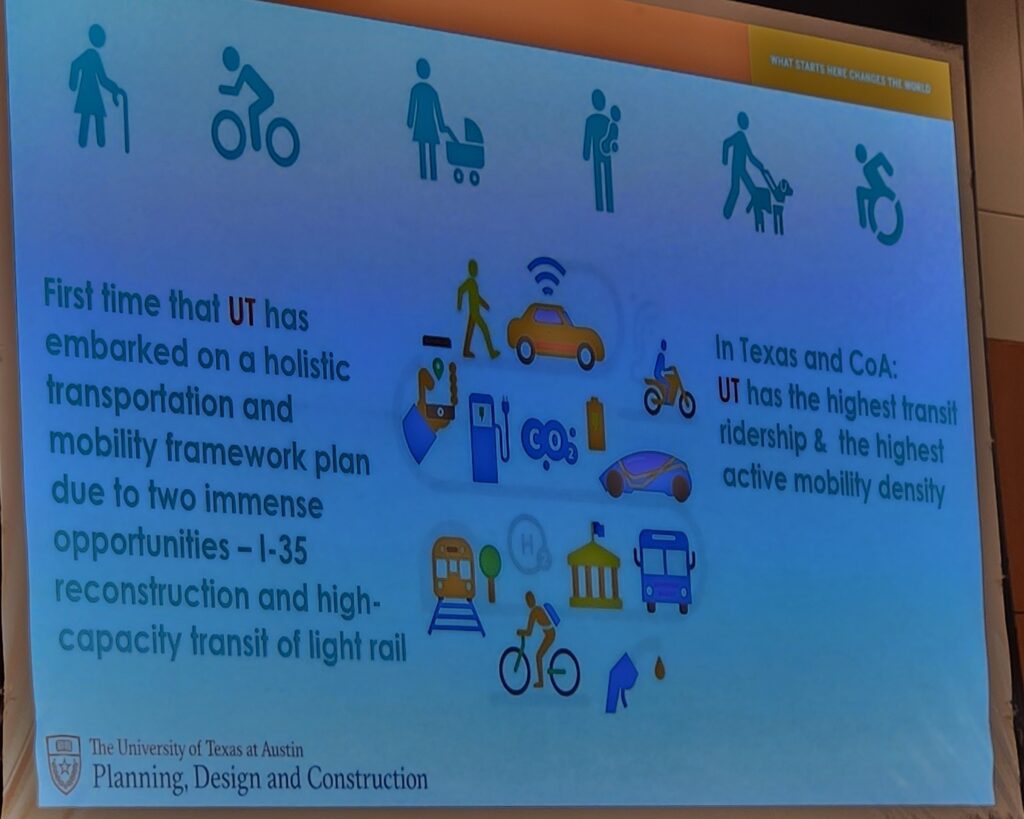
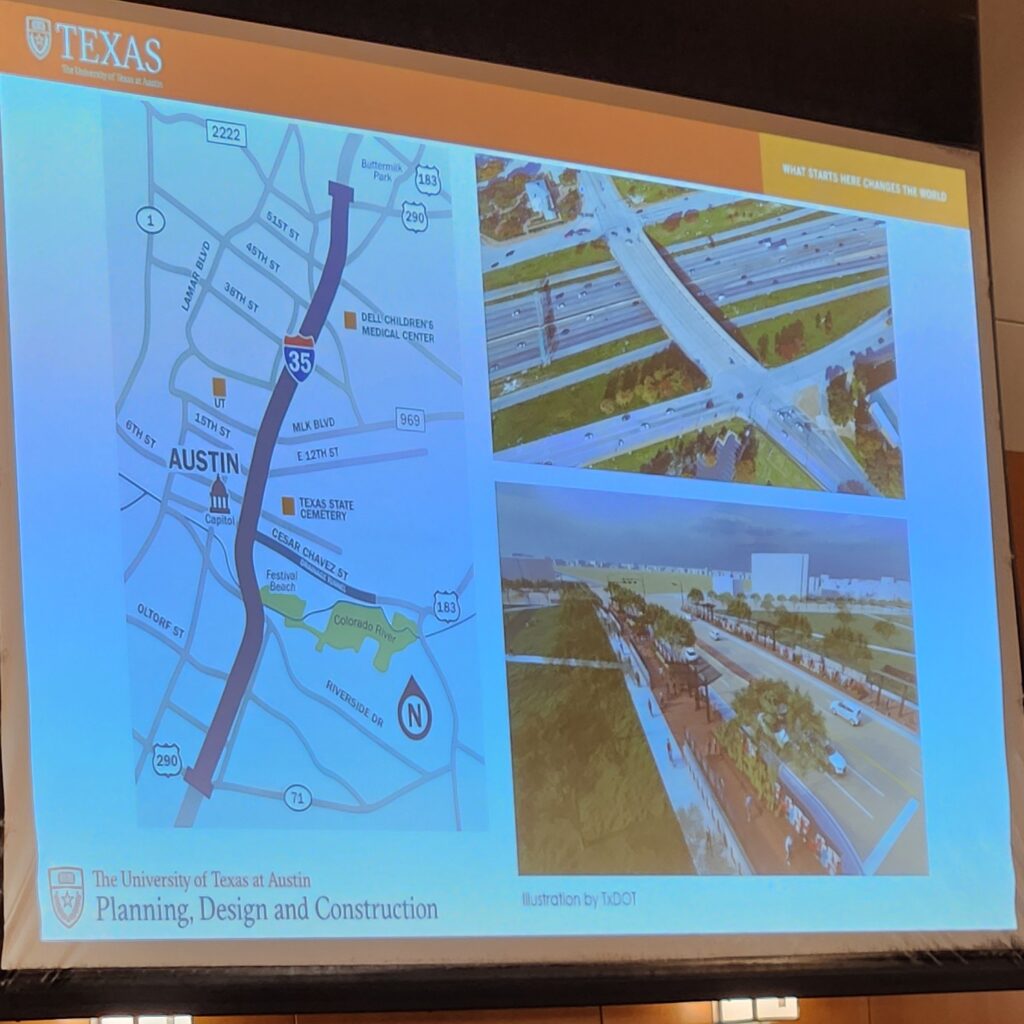
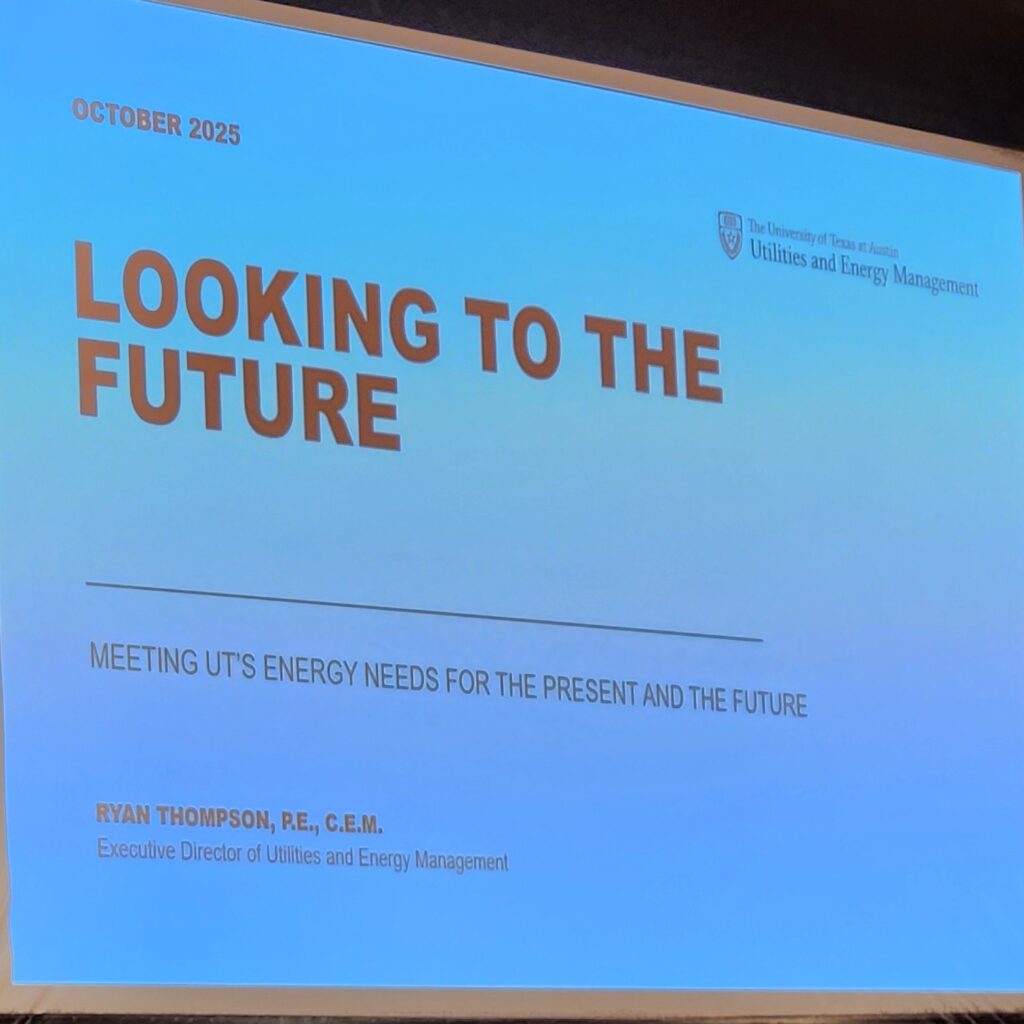
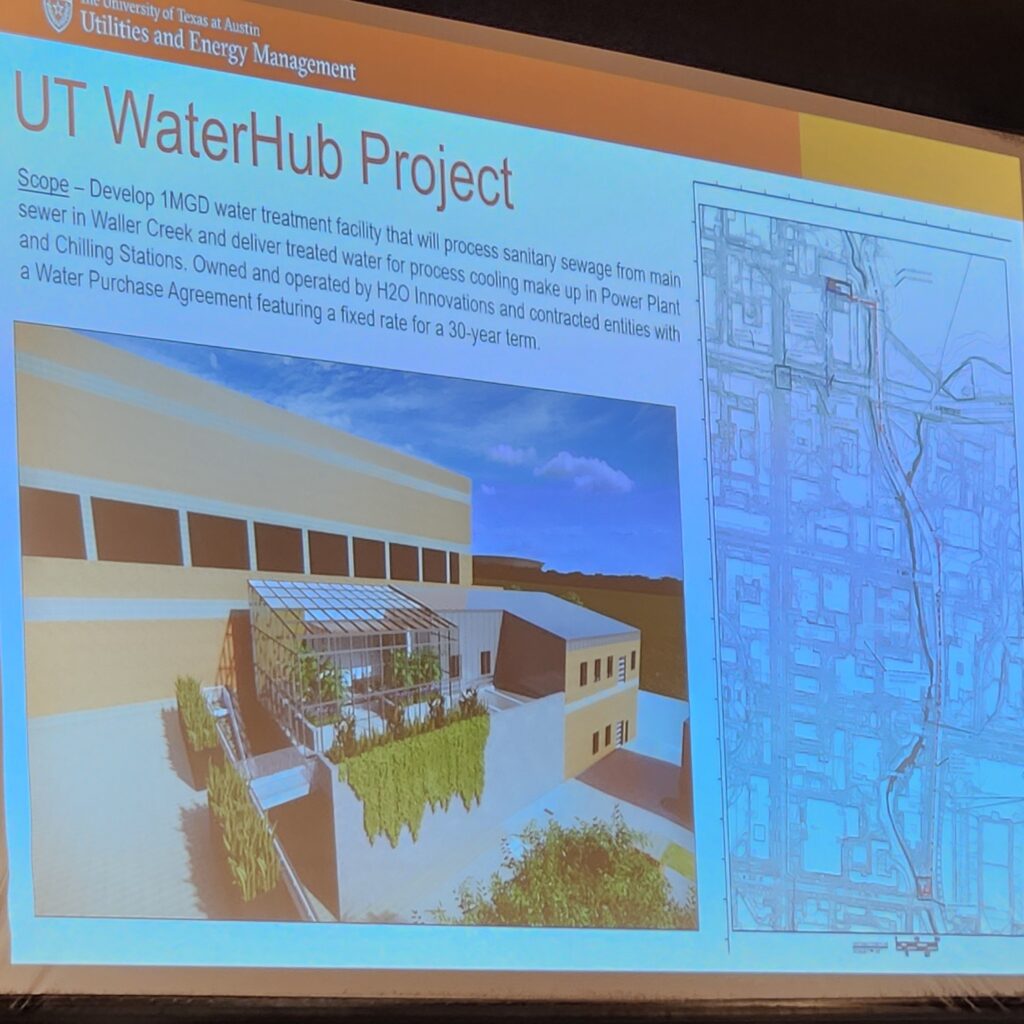
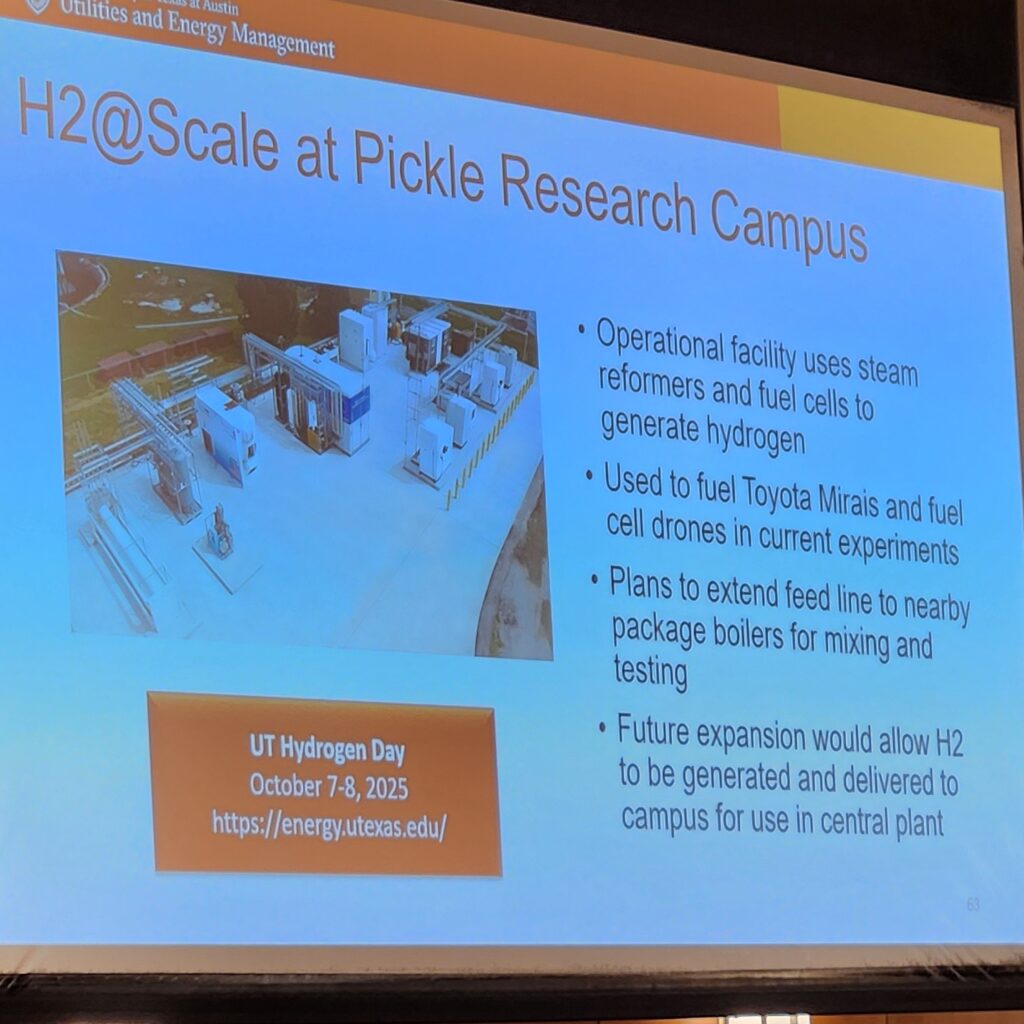
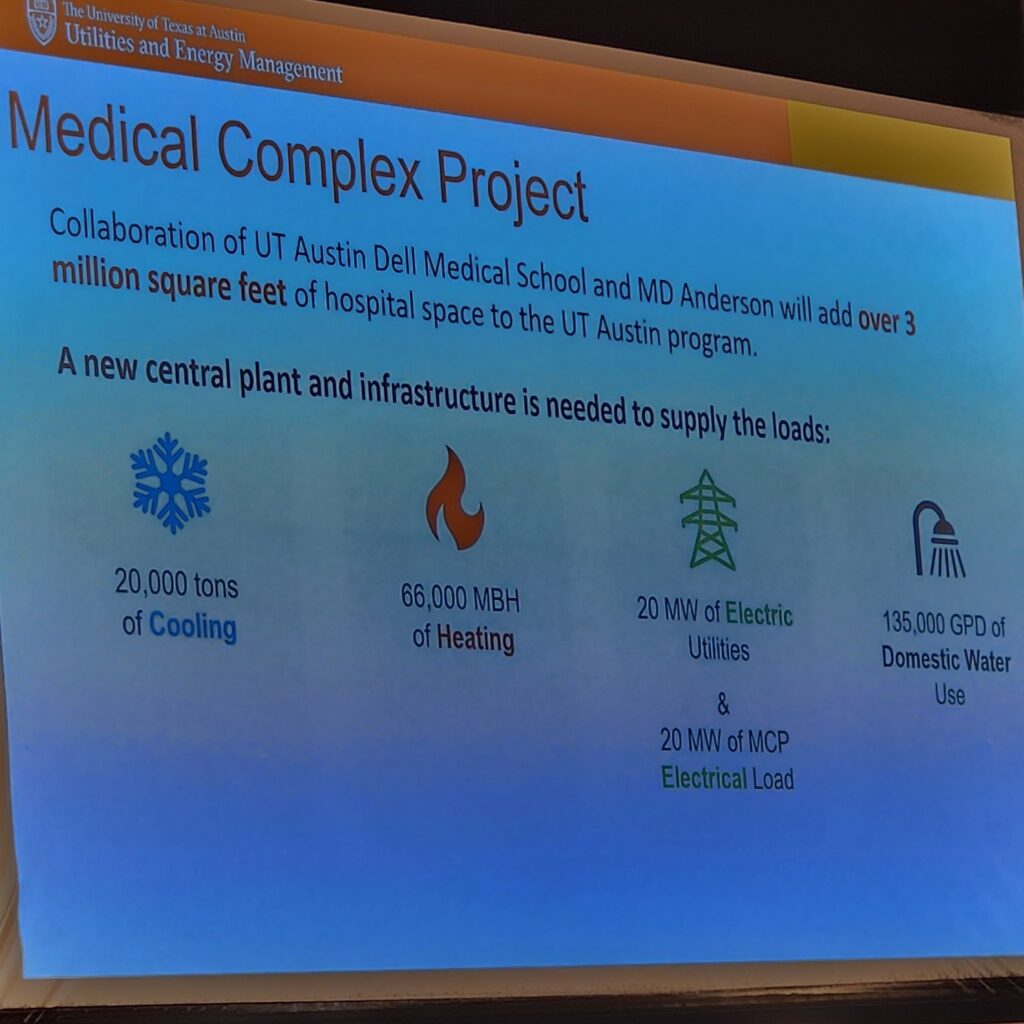
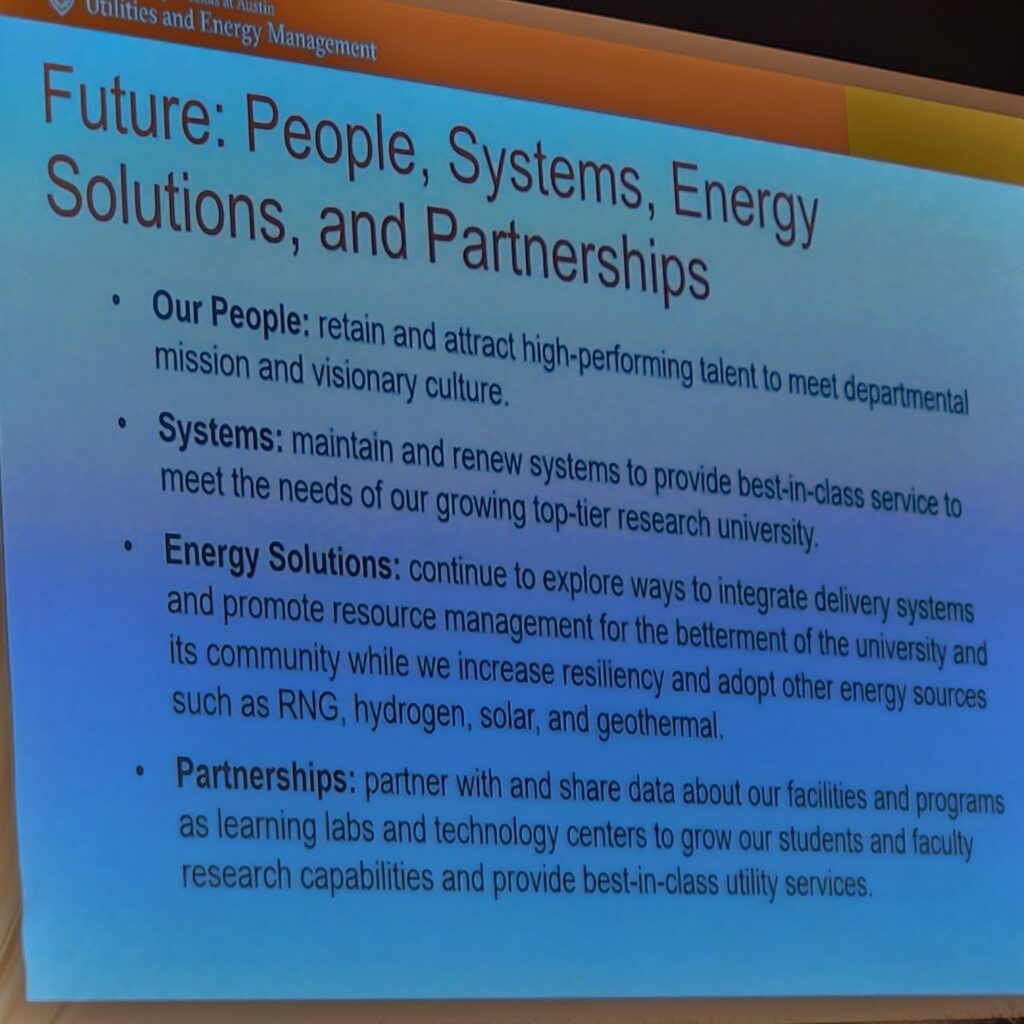
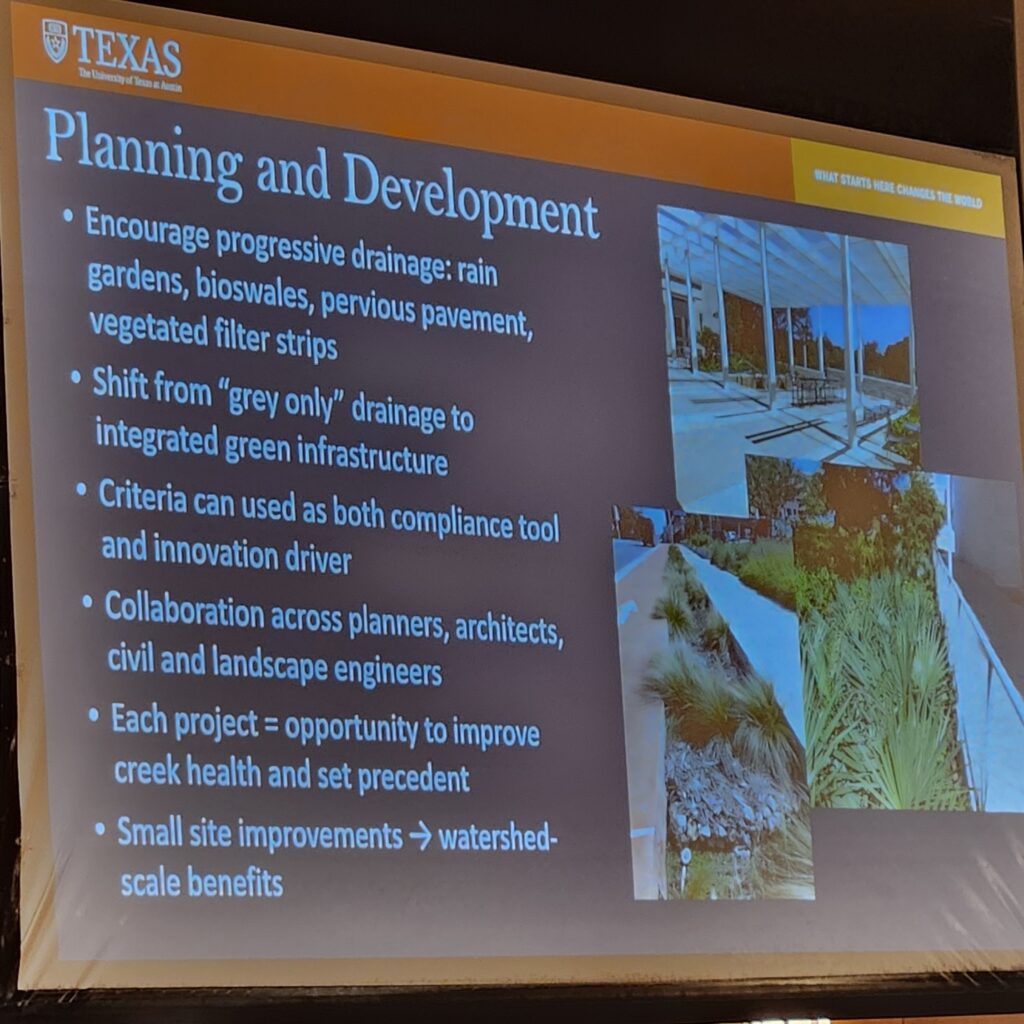
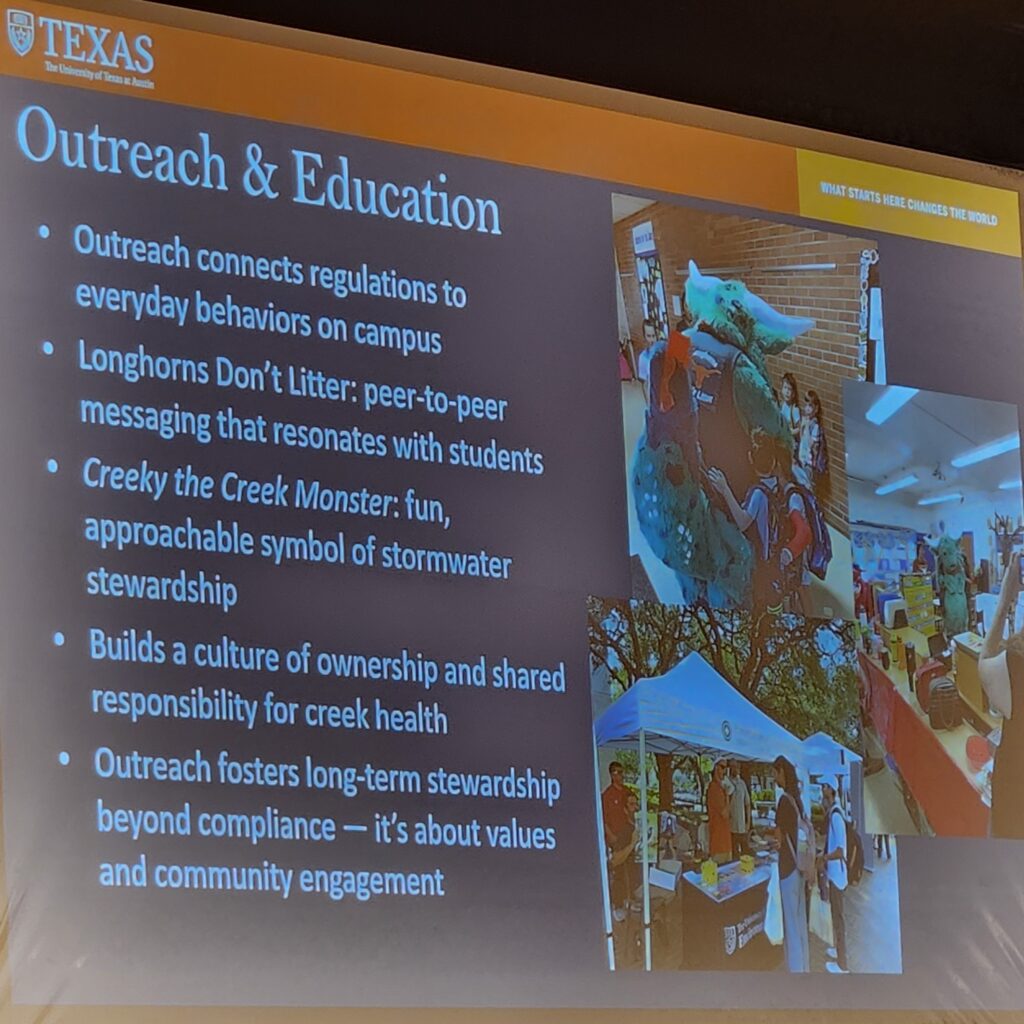
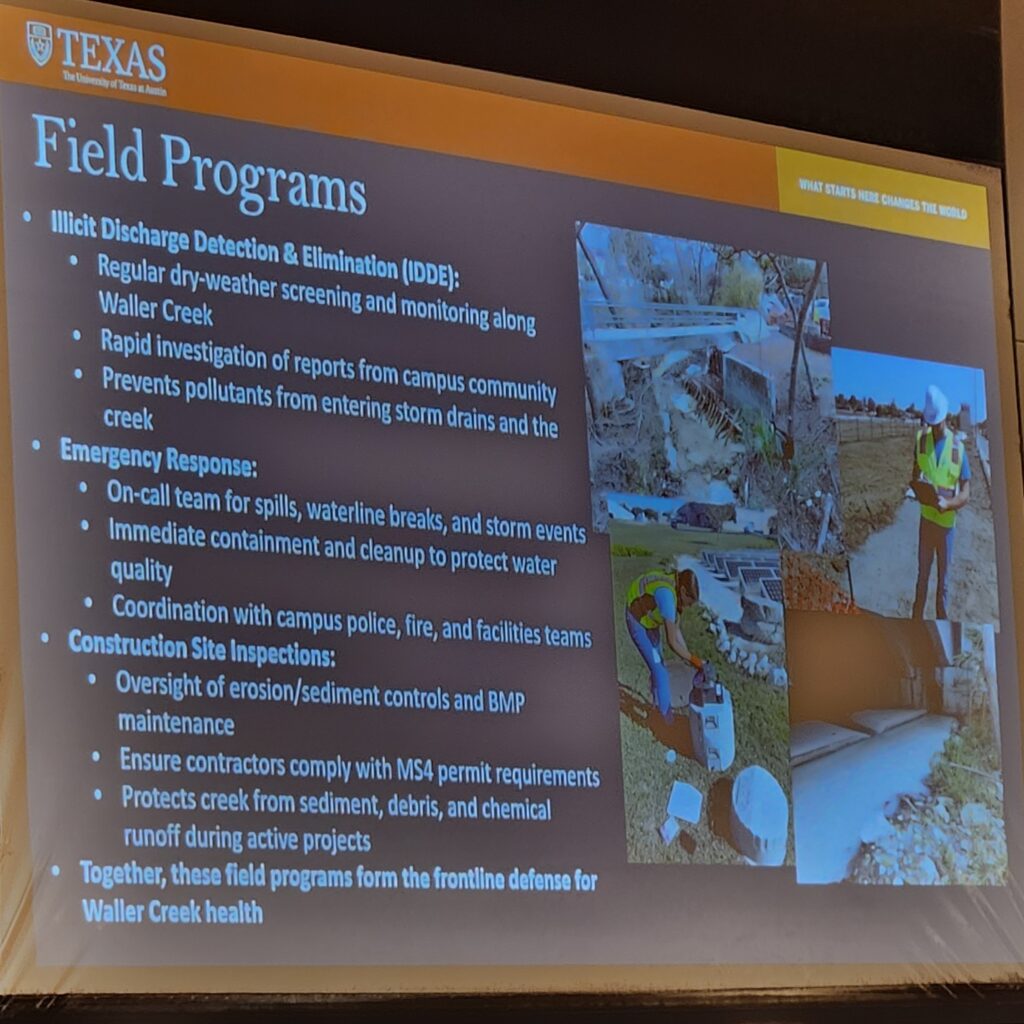
Keynote Address: Dr. Adam Met
Talk Title: How to Use the Power of Connection to Engage, Take Action, and Build a Better World
Dr. Adam Met, a climate advocate, nonprofit leader, and musician, delivered an inspiring keynote that centered on the power of human connection. He argued that sustainability movements succeed when they are able to resonate emotionally, culturally, and socially—not just scientifically. Drawing from his dual background in music and climate policy, he challenged attendees to think creatively about how to mobilize communities and use storytelling as a tool for change.
Highlights:
- The importance of storytelling in building climate movements.
- Strategies for connecting personal values with collective action.
- How collaboration across sectors leads to scalable solutions.
- A call for students and professionals to embrace both creativity and advocacy.
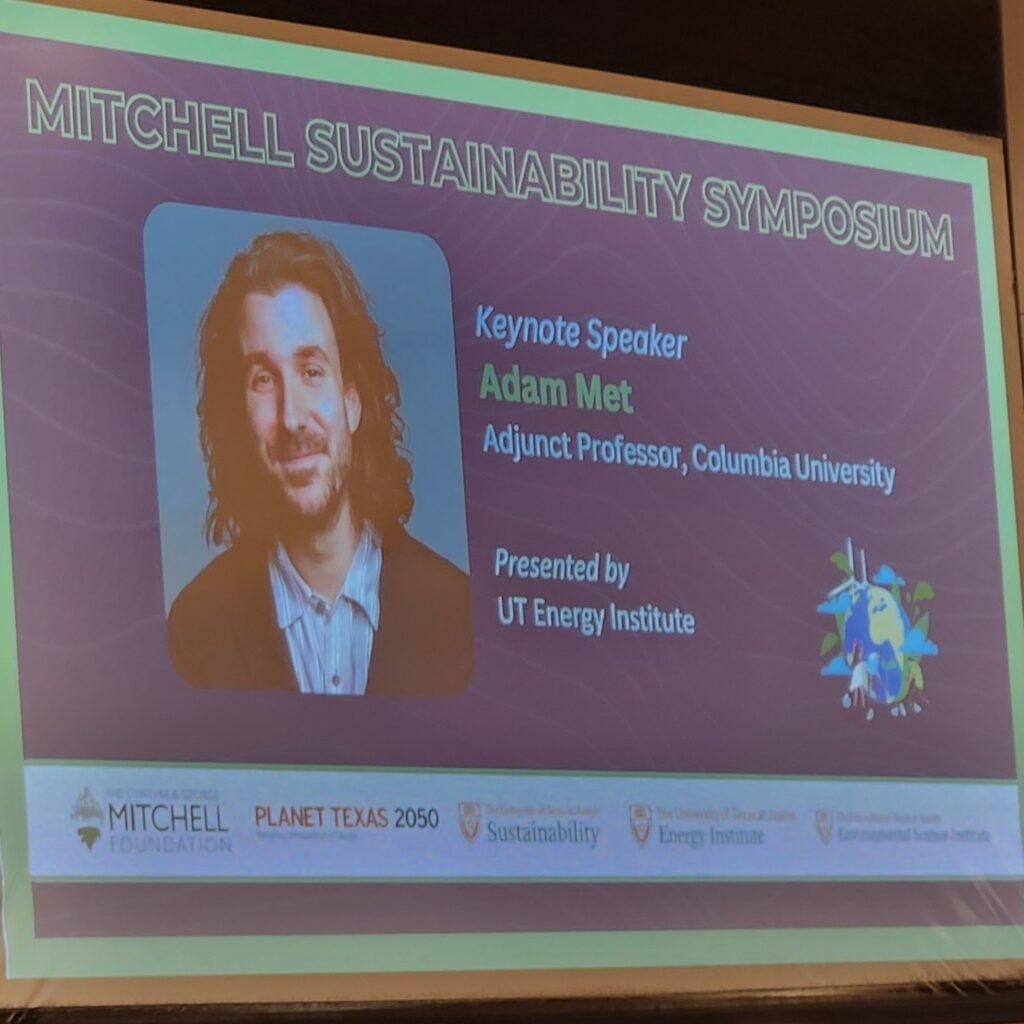
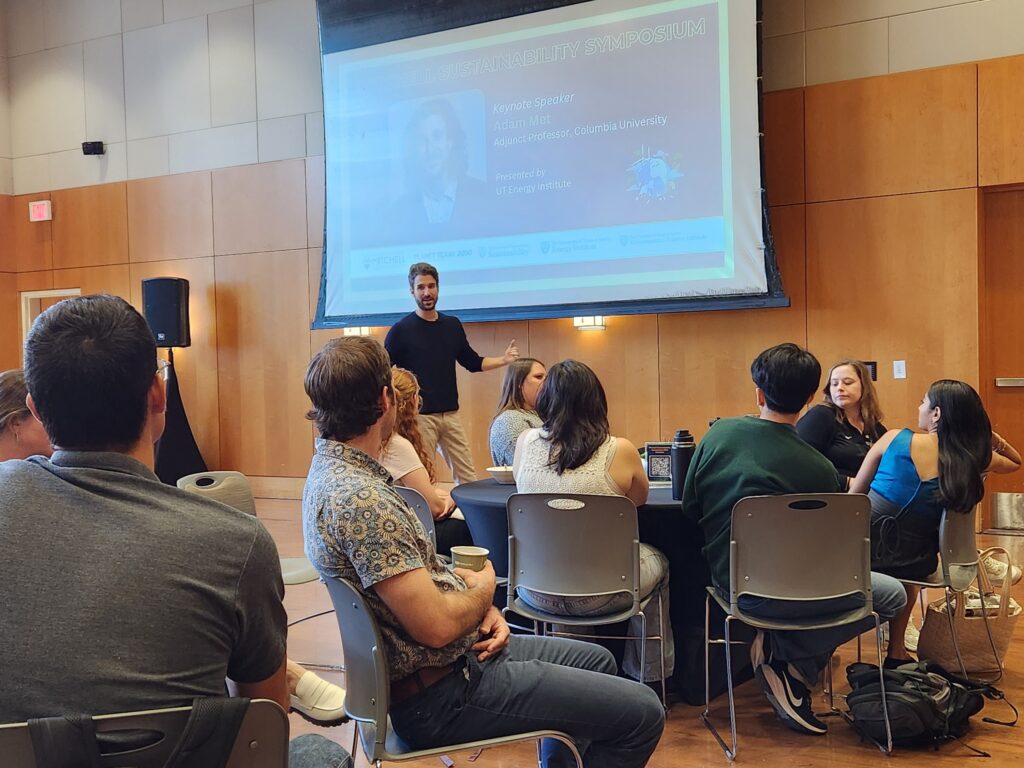
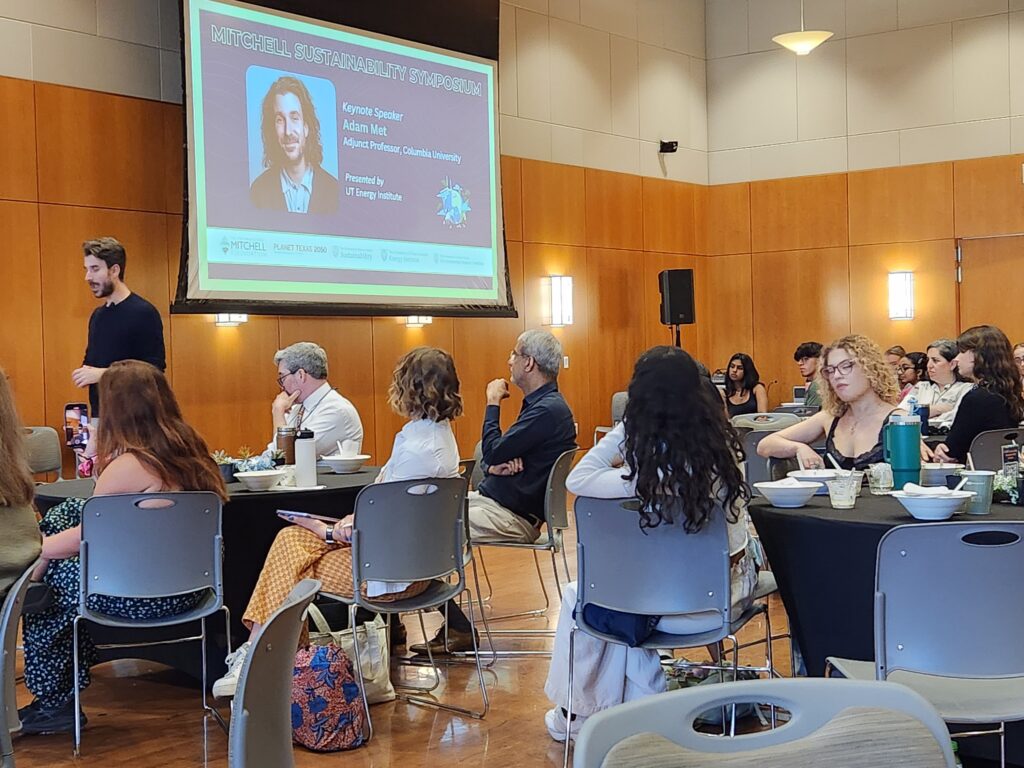
Campus as a Living Lab
Moderator: Jessi Drummond
Panelists: Valerie Salinas-Davis, Matt Stevens, Shannon Strank
This session highlighted how UT Austin’s campus is being used as a testbed for sustainability innovation and education. Speakers described projects that integrate research with real-world operations, allowing students and faculty to experiment with solutions on-site. The conversation emphasized that viewing the campus as a “living lab” creates opportunities to accelerate progress, generate data, and directly involve students in solving sustainability challenges.
Highlights:
- Using campus infrastructure as a hands-on sustainability teaching tool.
- Integration of communication strategies to engage wider audiences.
- Research partnerships between faculty, students, and operations staff.
- Pilots for renewable energy and advanced technology demonstration.
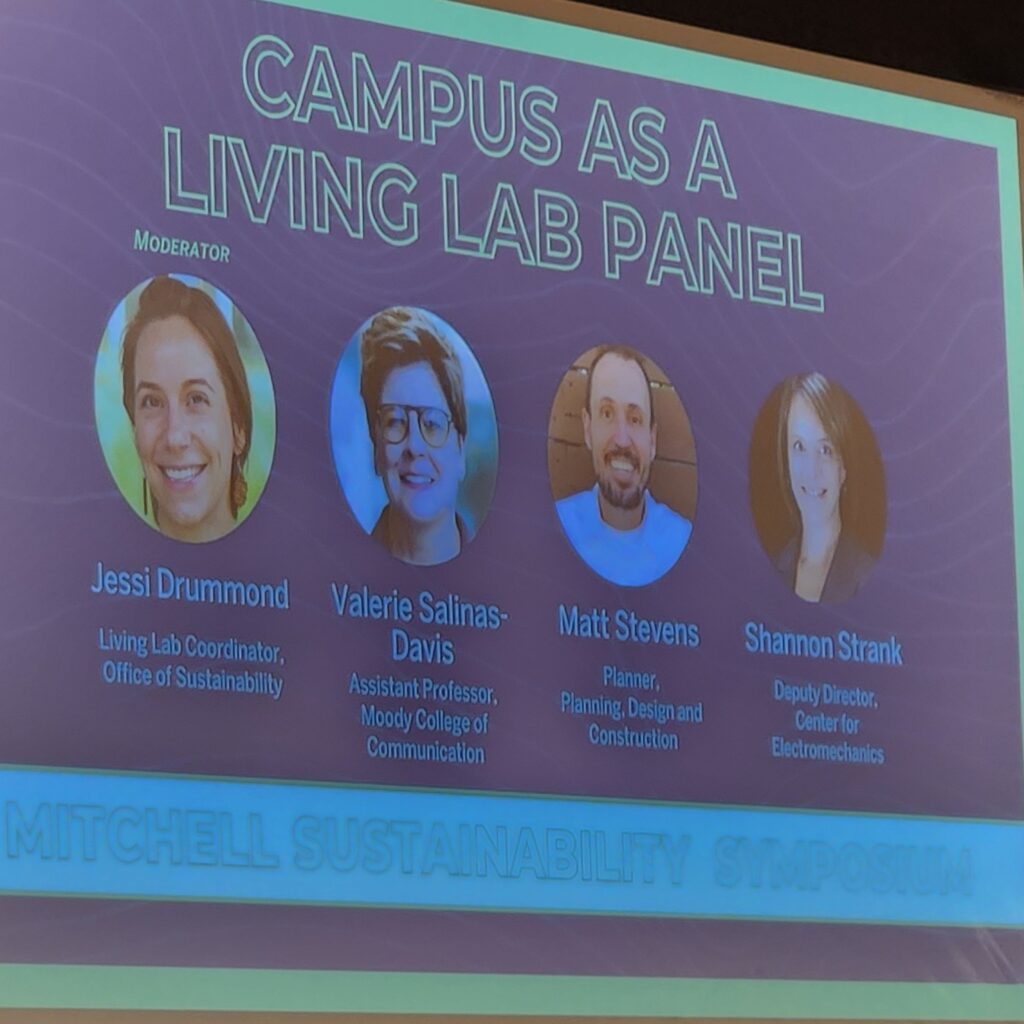
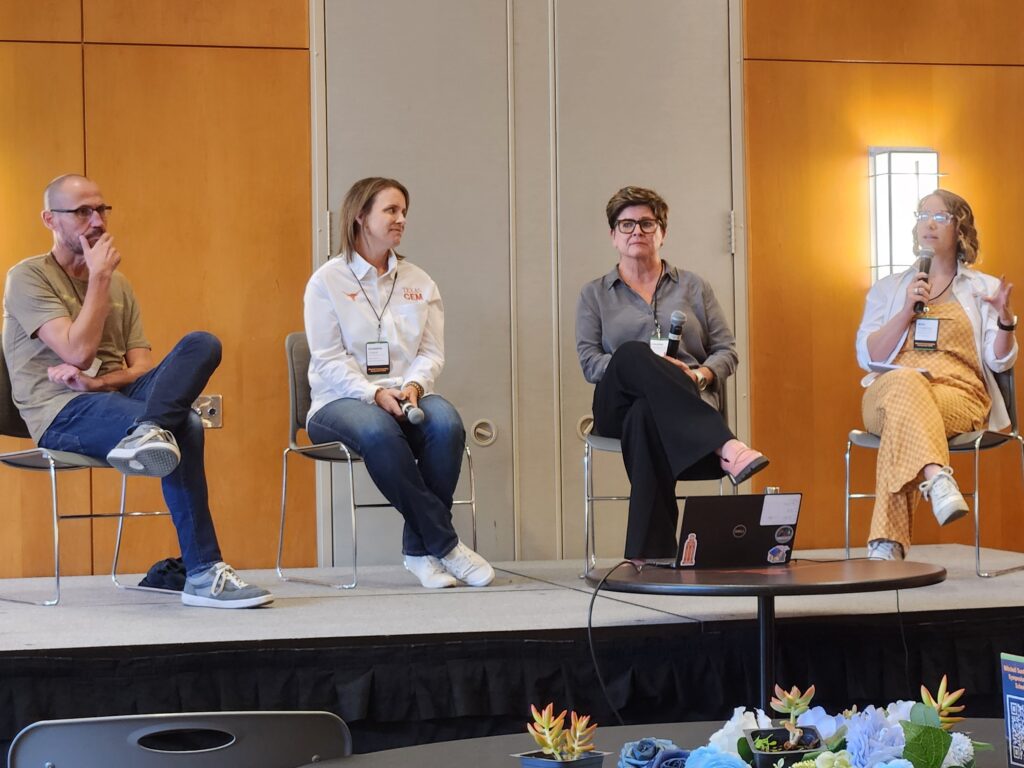
Student Lightning Talks
The day ended with fast-paced, energetic presentations from students representing a range of disciplines. Each talk demonstrated how creativity and academic research can intersect to produce innovative solutions for pressing environmental issues. From synthetic biology and nanotechnology to architecture and campus climate leadership, the lightning talks showcased the bold thinking and experimentation happening within the UT student community.
Highlights:
- Synthetic Biology: New methods to detect harmful algal blooms in Lady Bird Lake.
- Biodiversity & Habitat: Bird-friendly campus initiatives led by UTMSI Green Team.
- Climate Science: Reconstructing climate variability in Central Texas river basins.
- Circular Economy: Creative re-use projects such as glass recycling and construction waste diversion.
- Architecture & Design: Emergy analysis to rethink buildings as living systems.
- Technology: Biodegradable nanorobots to tackle soil microplastics.
- Campus Leadership: UT Farm Stand and student-led climate strategy initiatives.
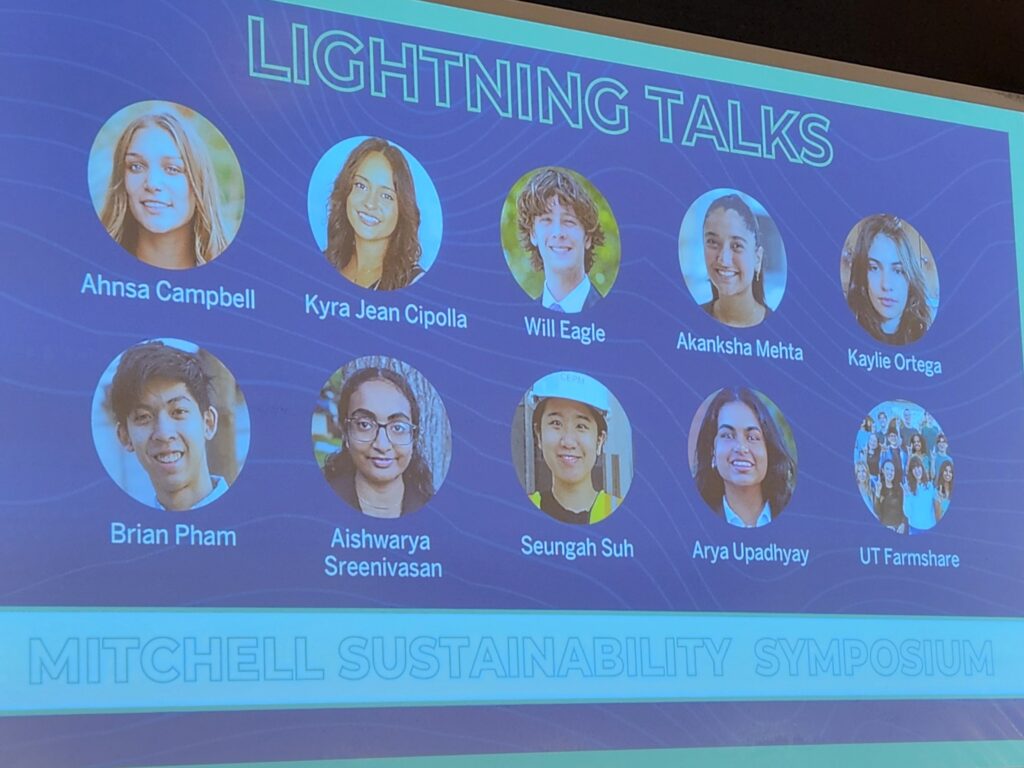
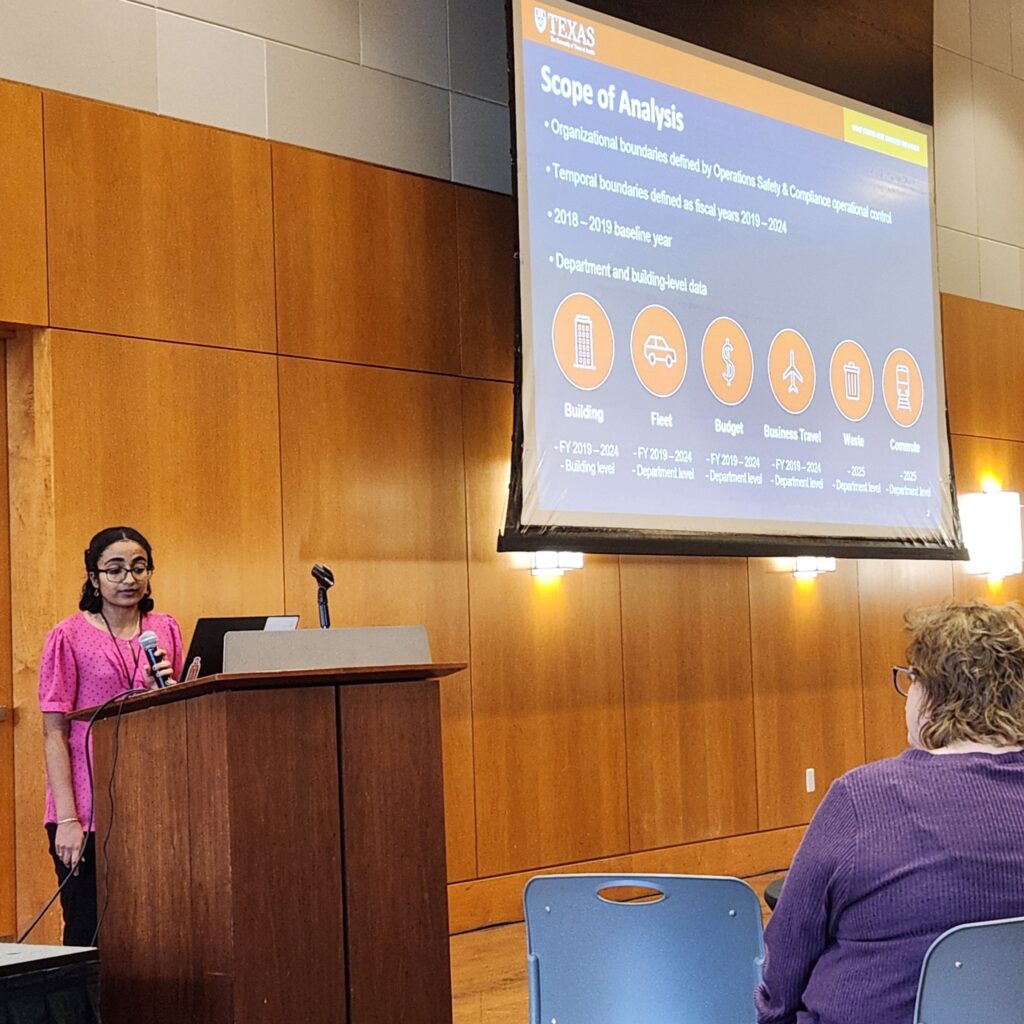
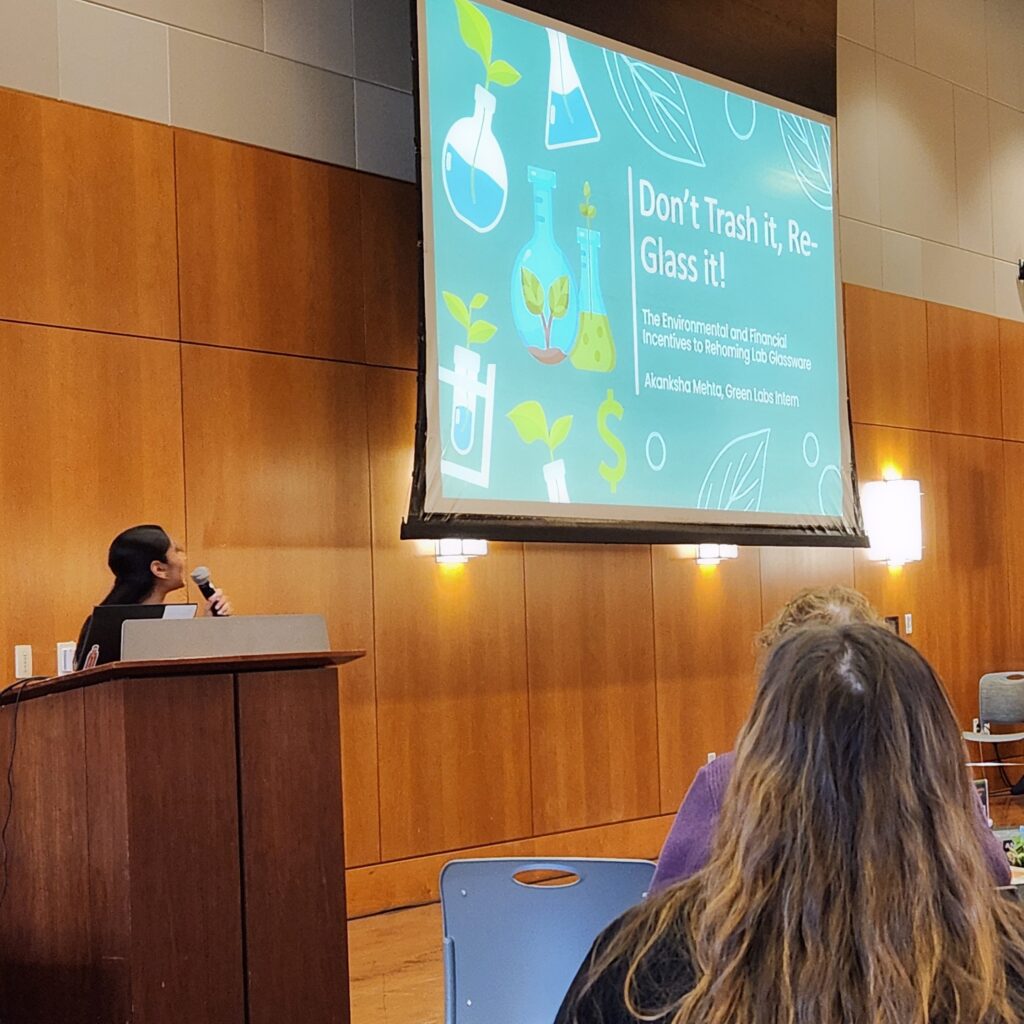
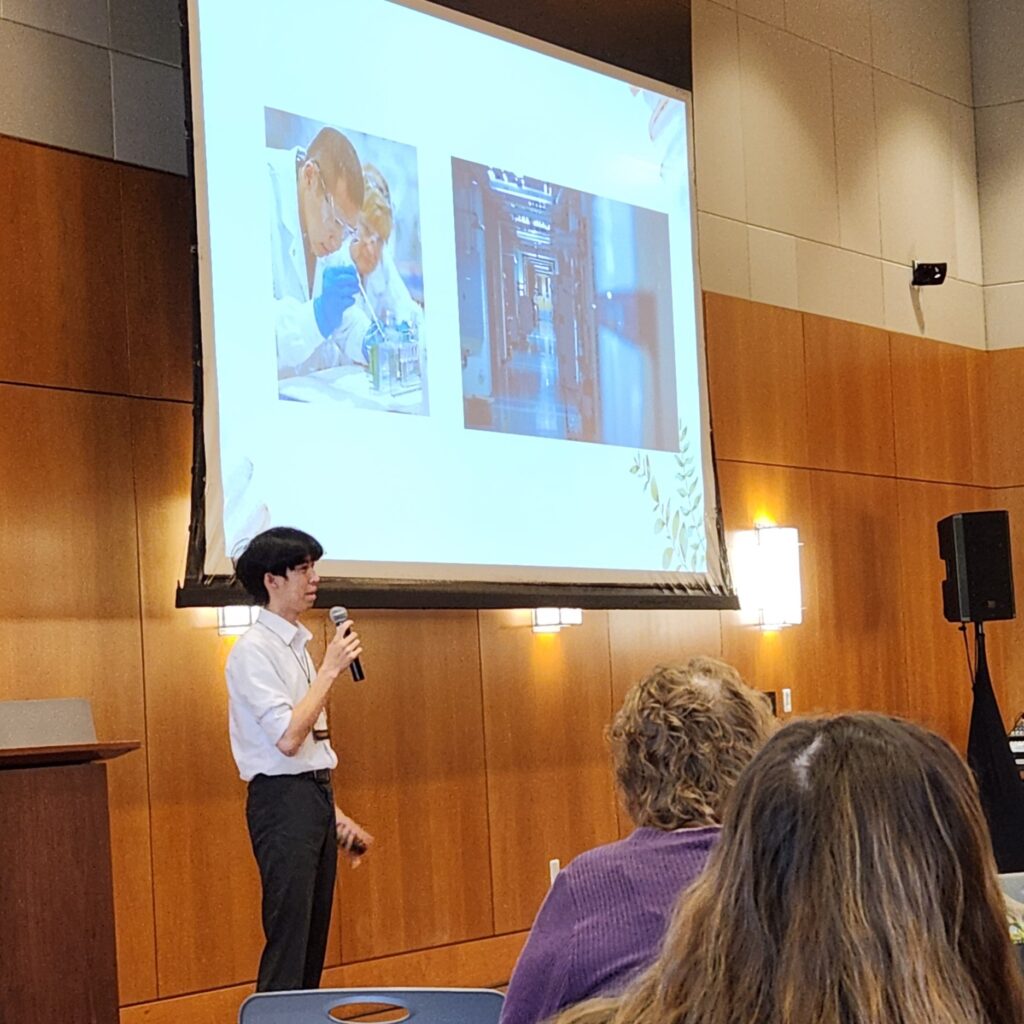
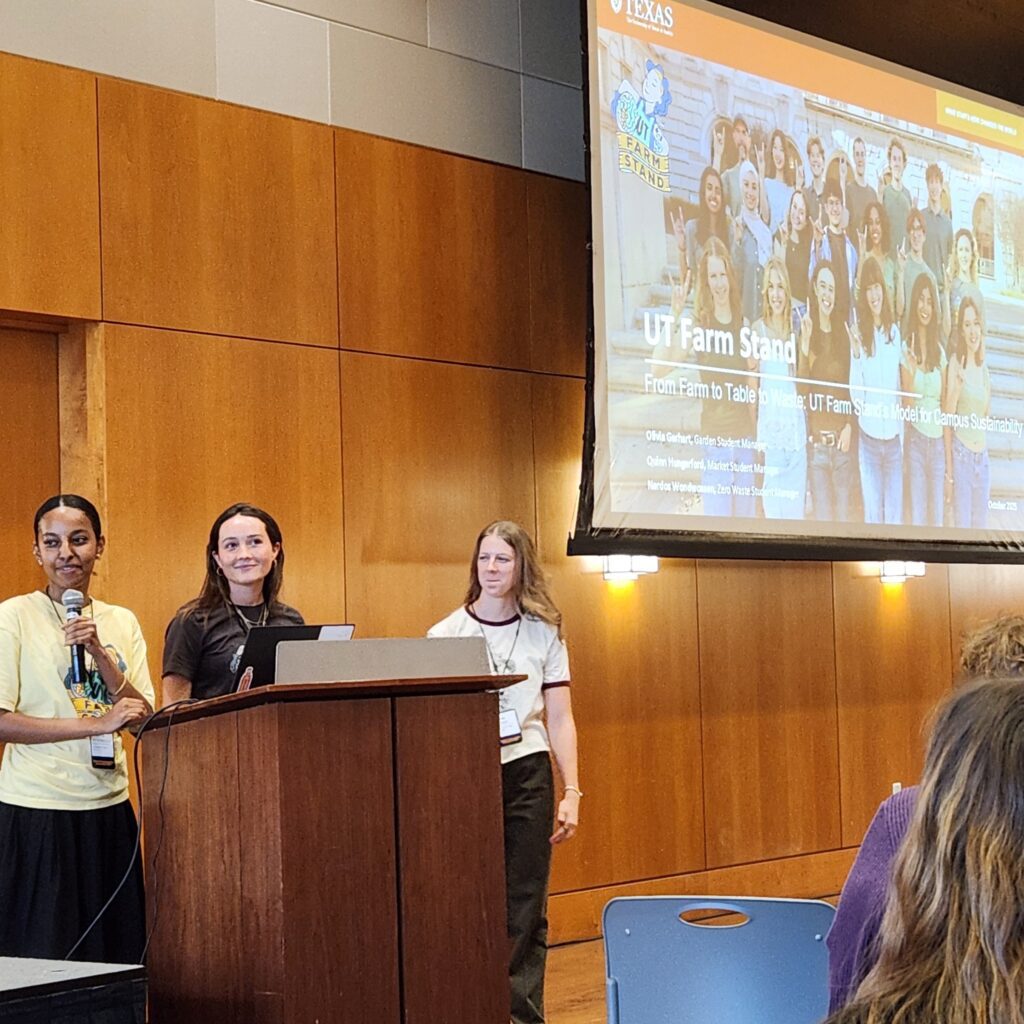
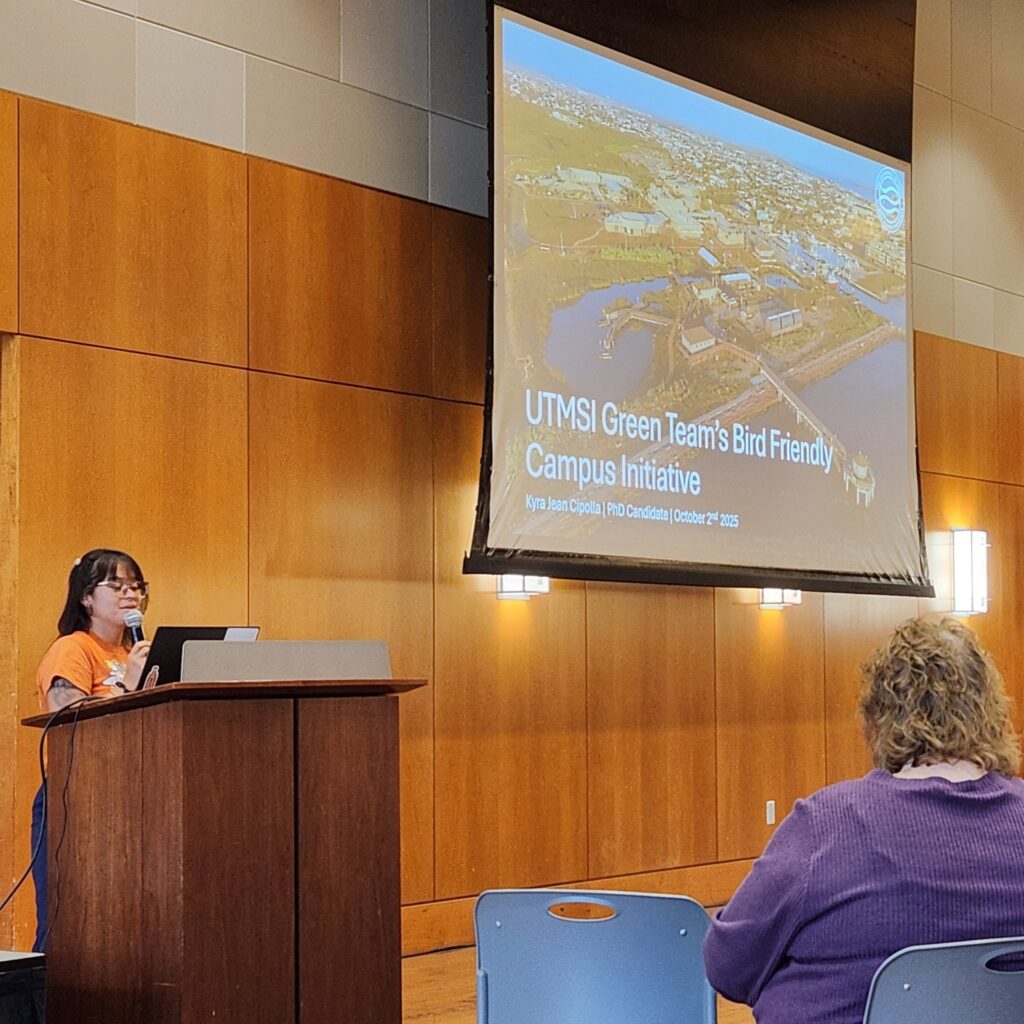
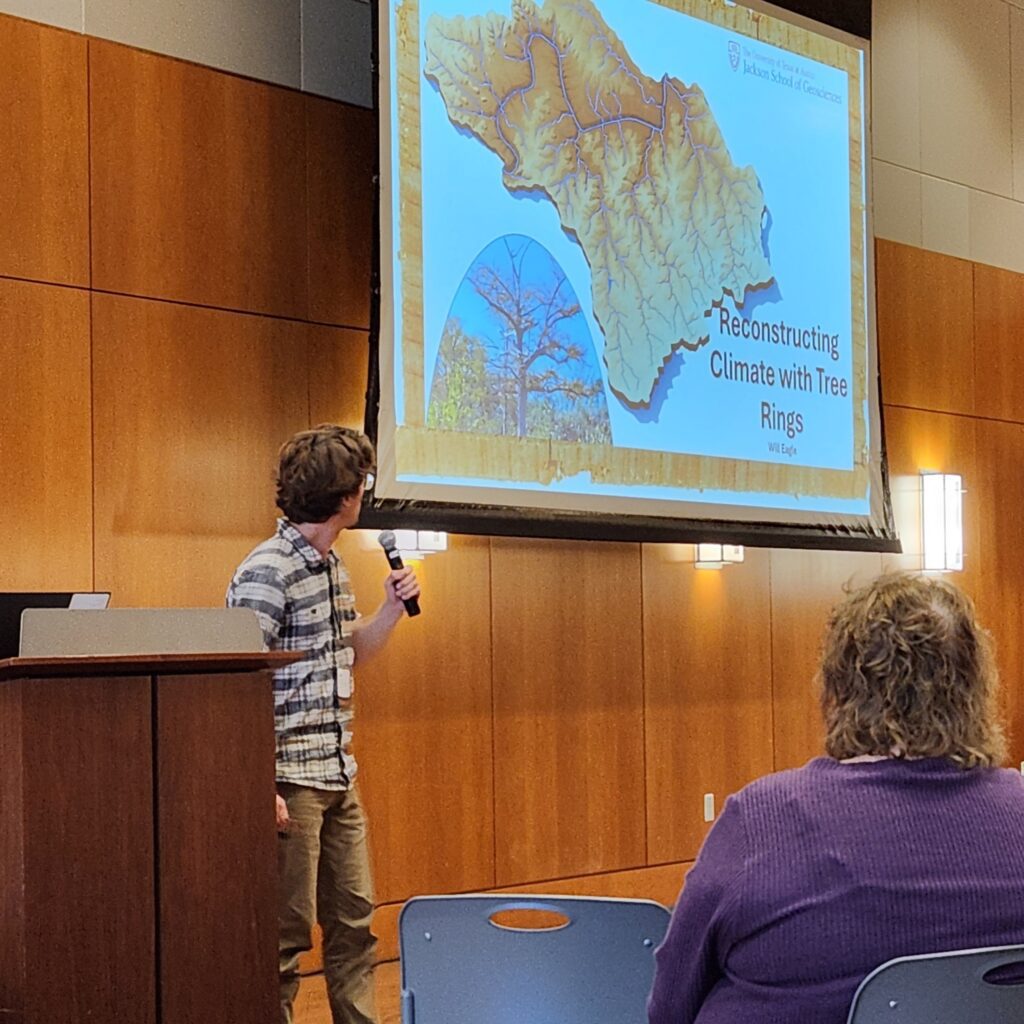
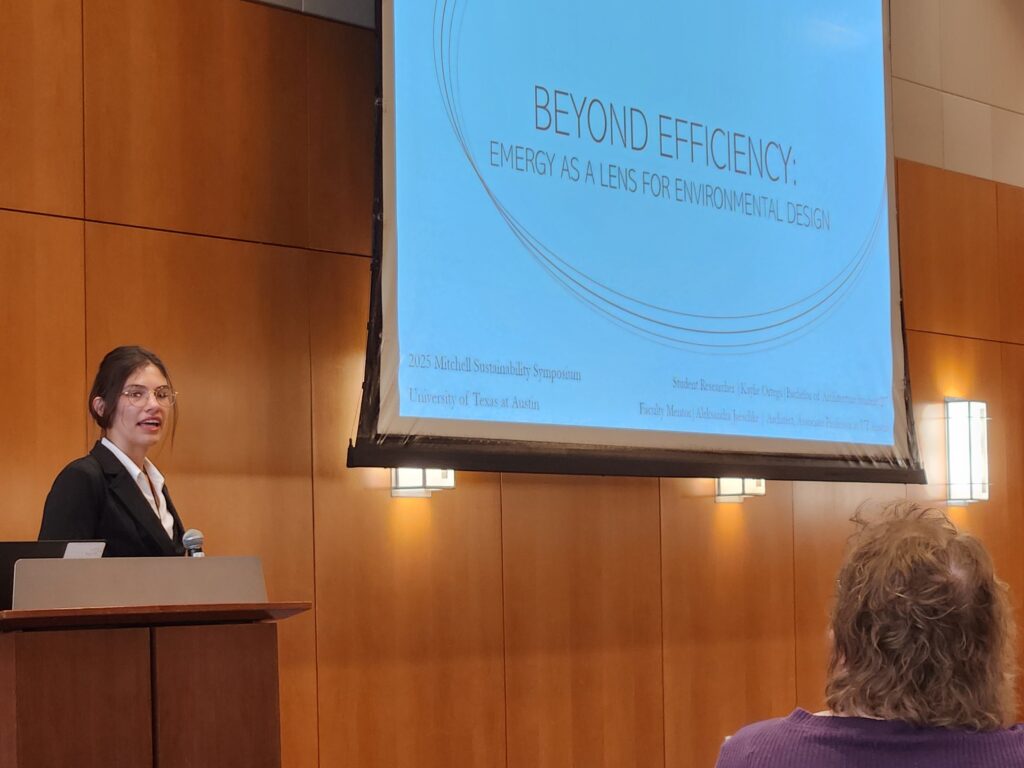
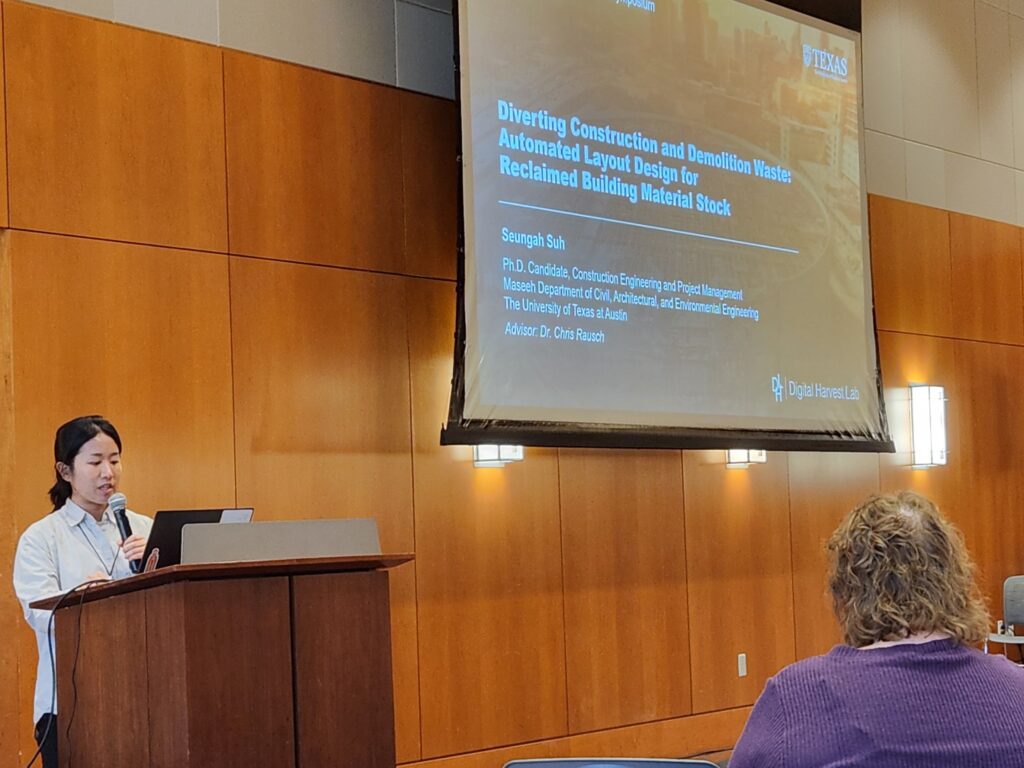
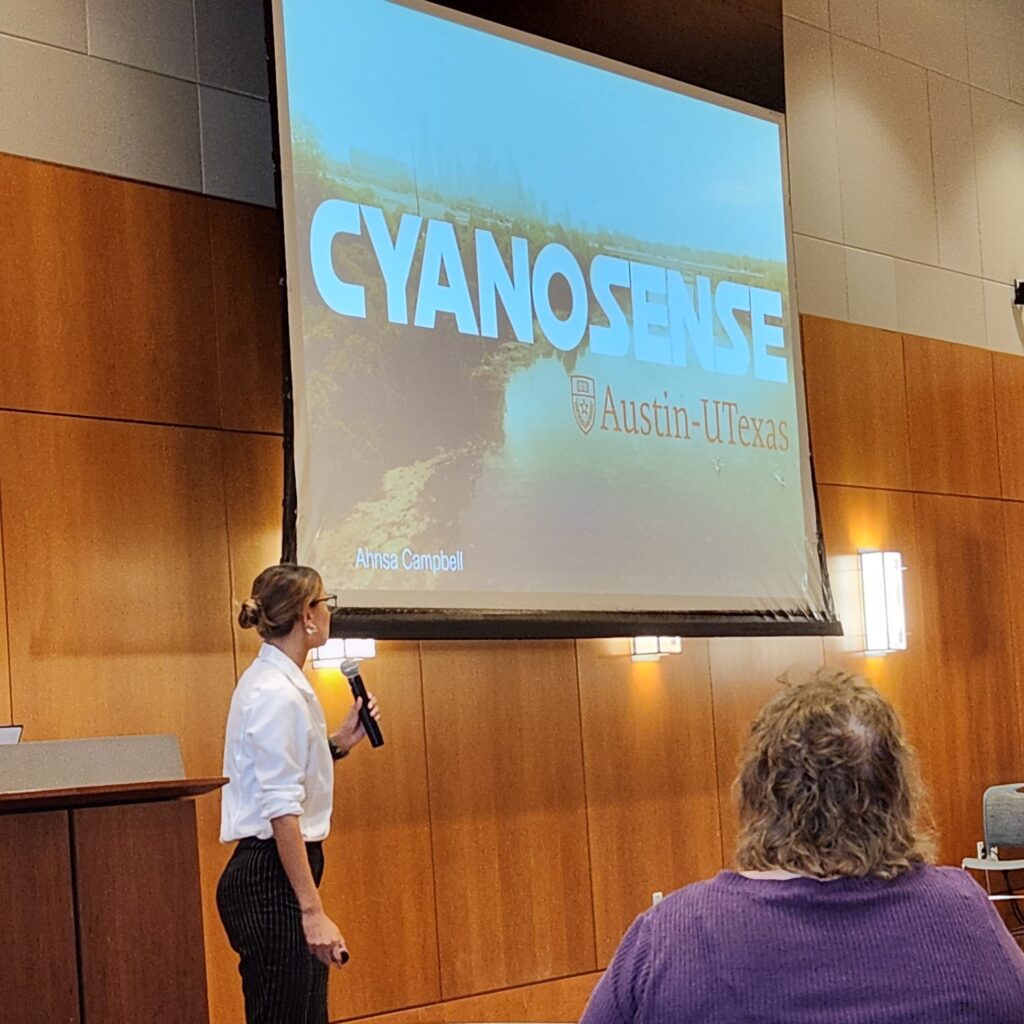
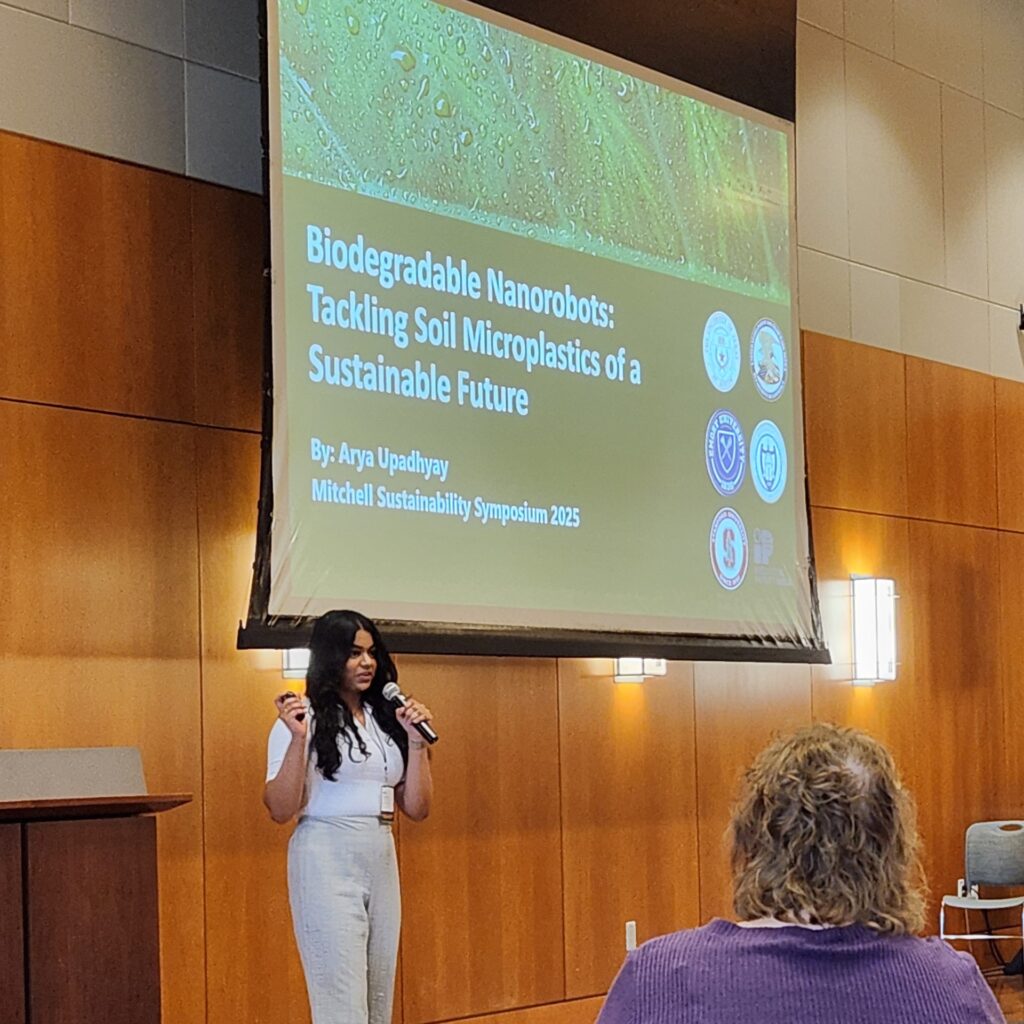
Closing Thoughts
The 2025 Mitchell Sustainability Symposium demonstrated the power of combining research, student energy, and institutional vision to push forward the sustainability agenda at UT Austin. From world-class facilities planning to grassroots student innovation, the day underscored a key takeaway: meaningful progress emerges when knowledge, creativity, and collaboration meet.
*Content was generated with AI based on my notes and direction, then edited and refined by me for accuracy.

